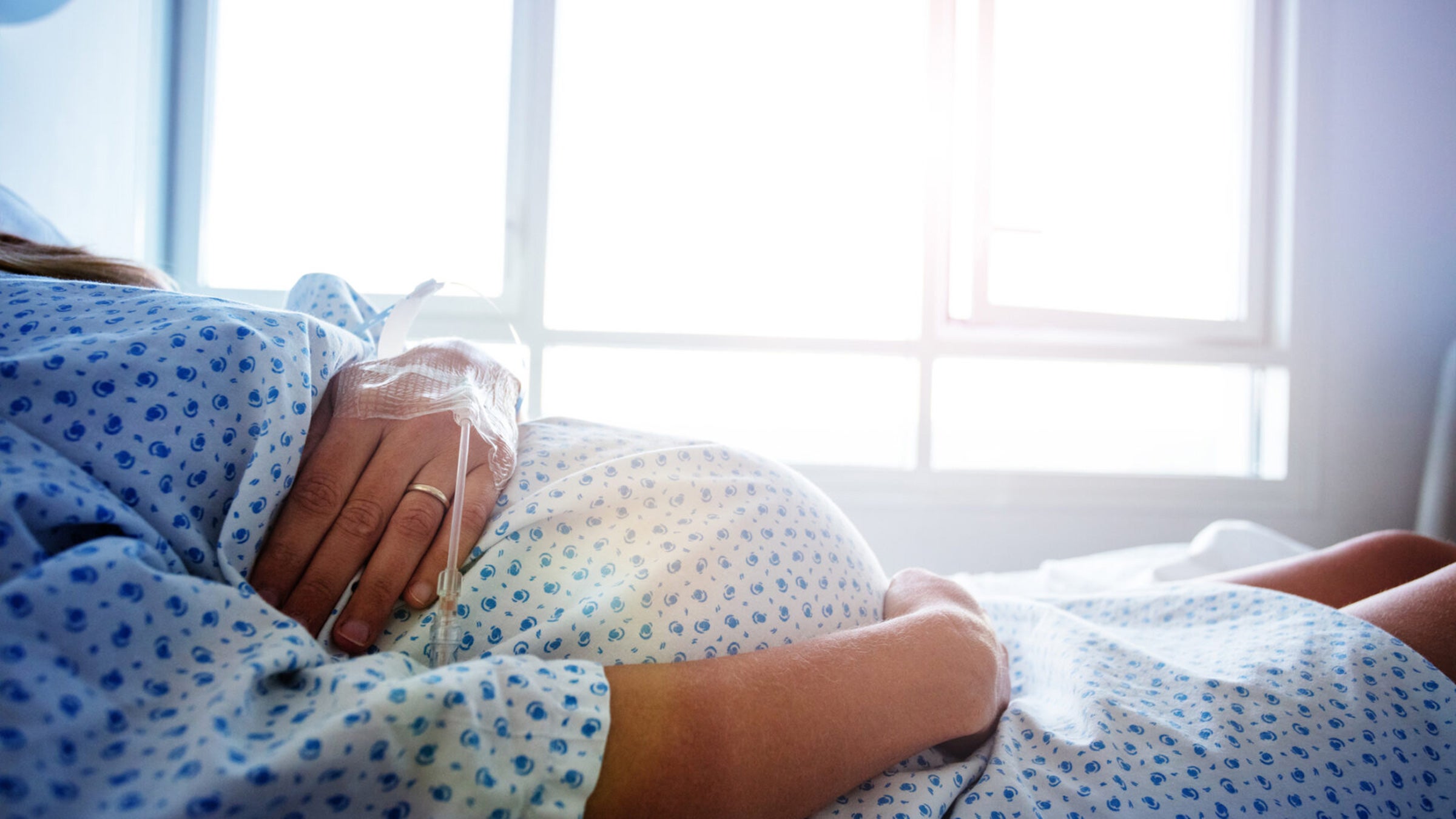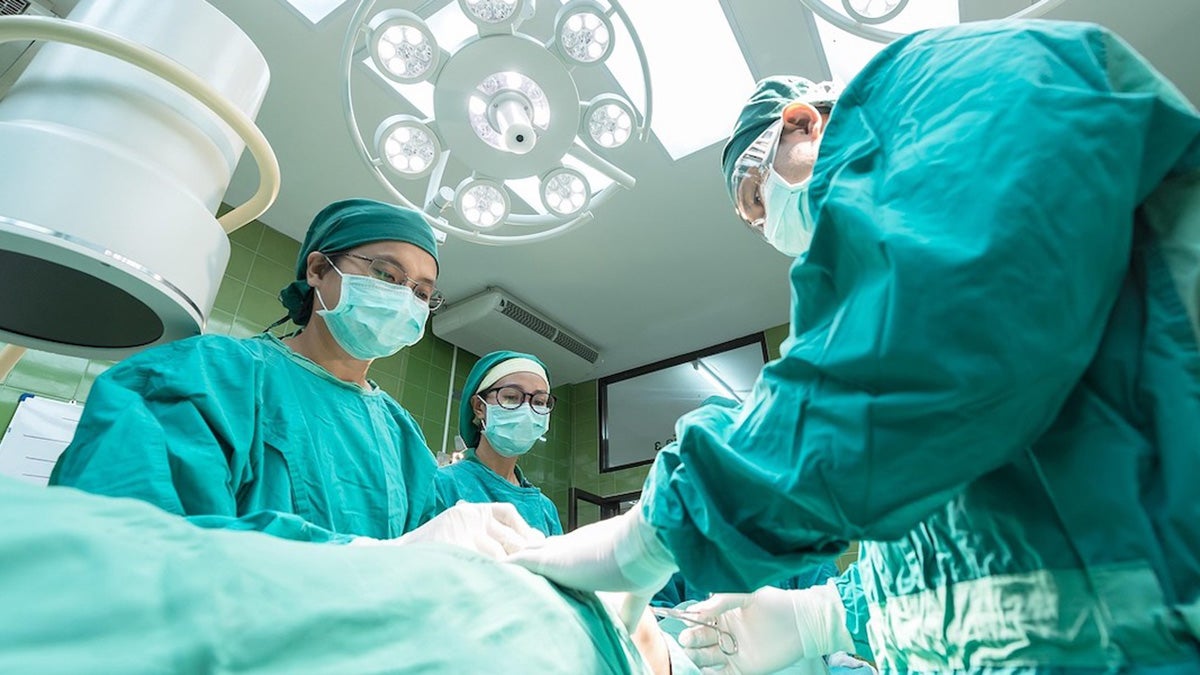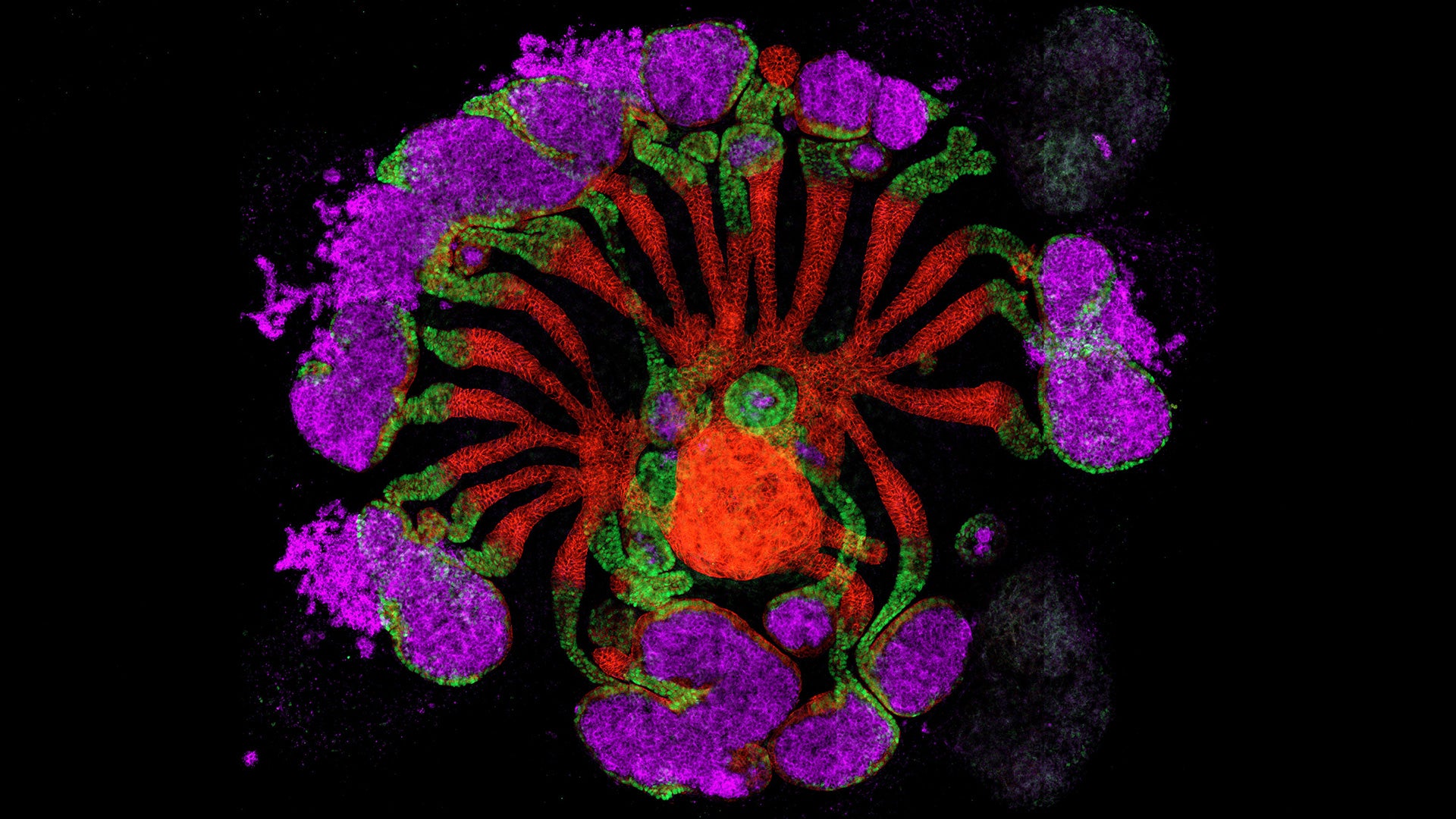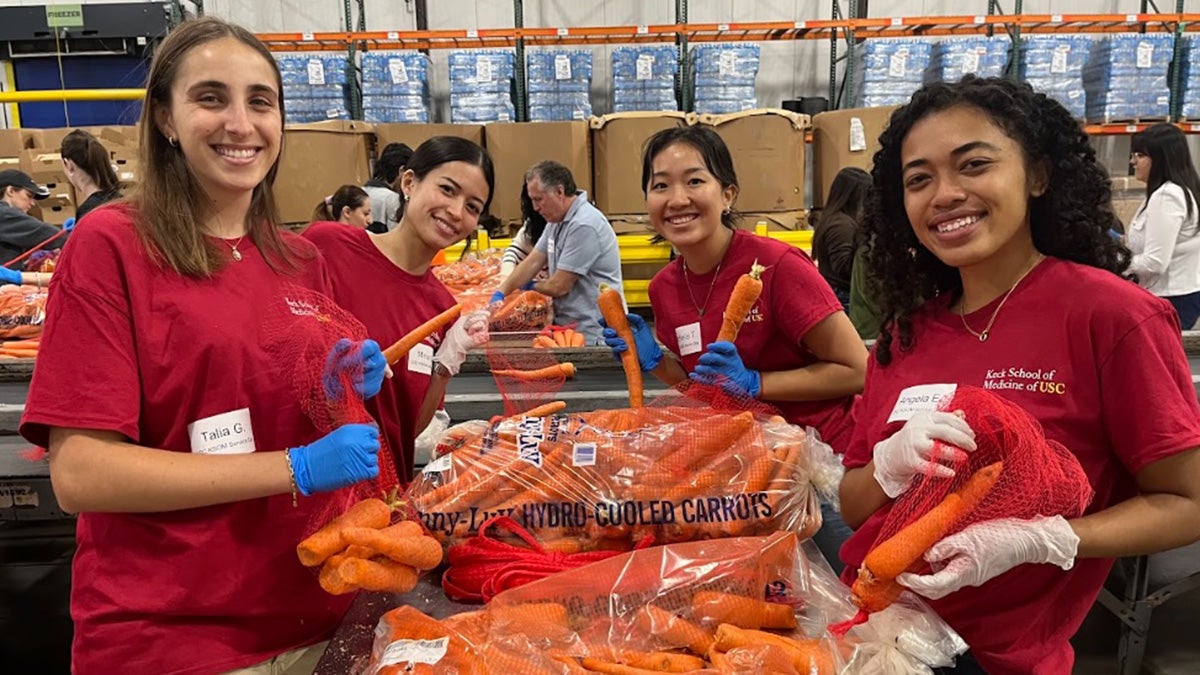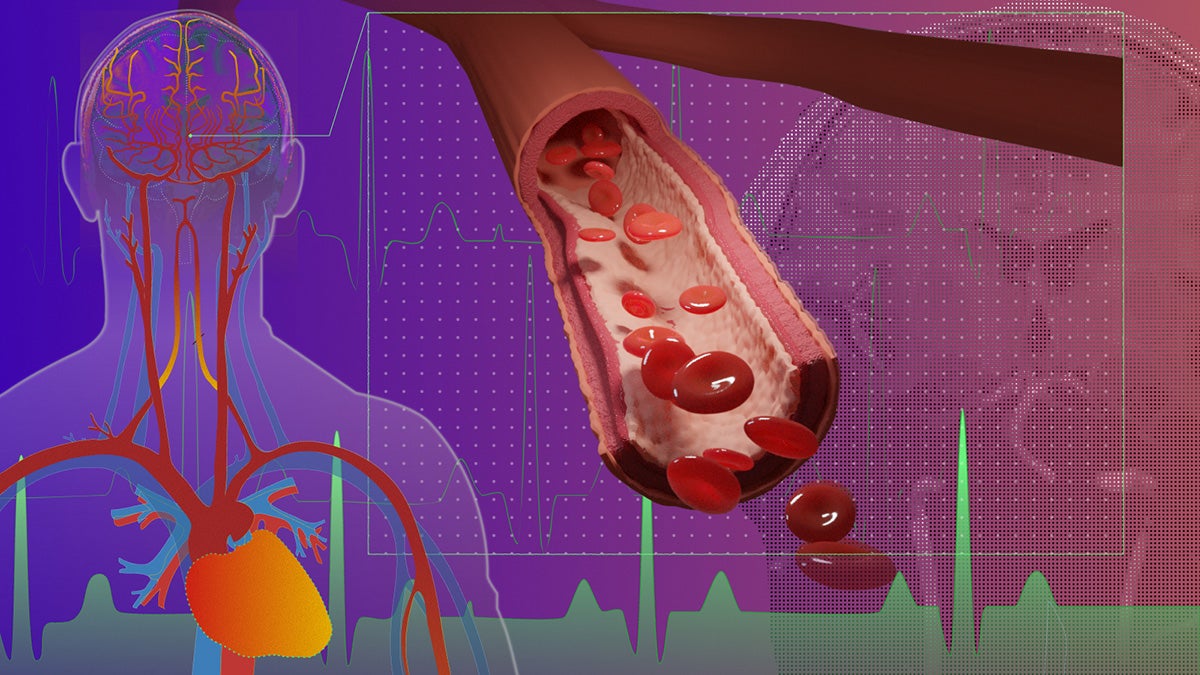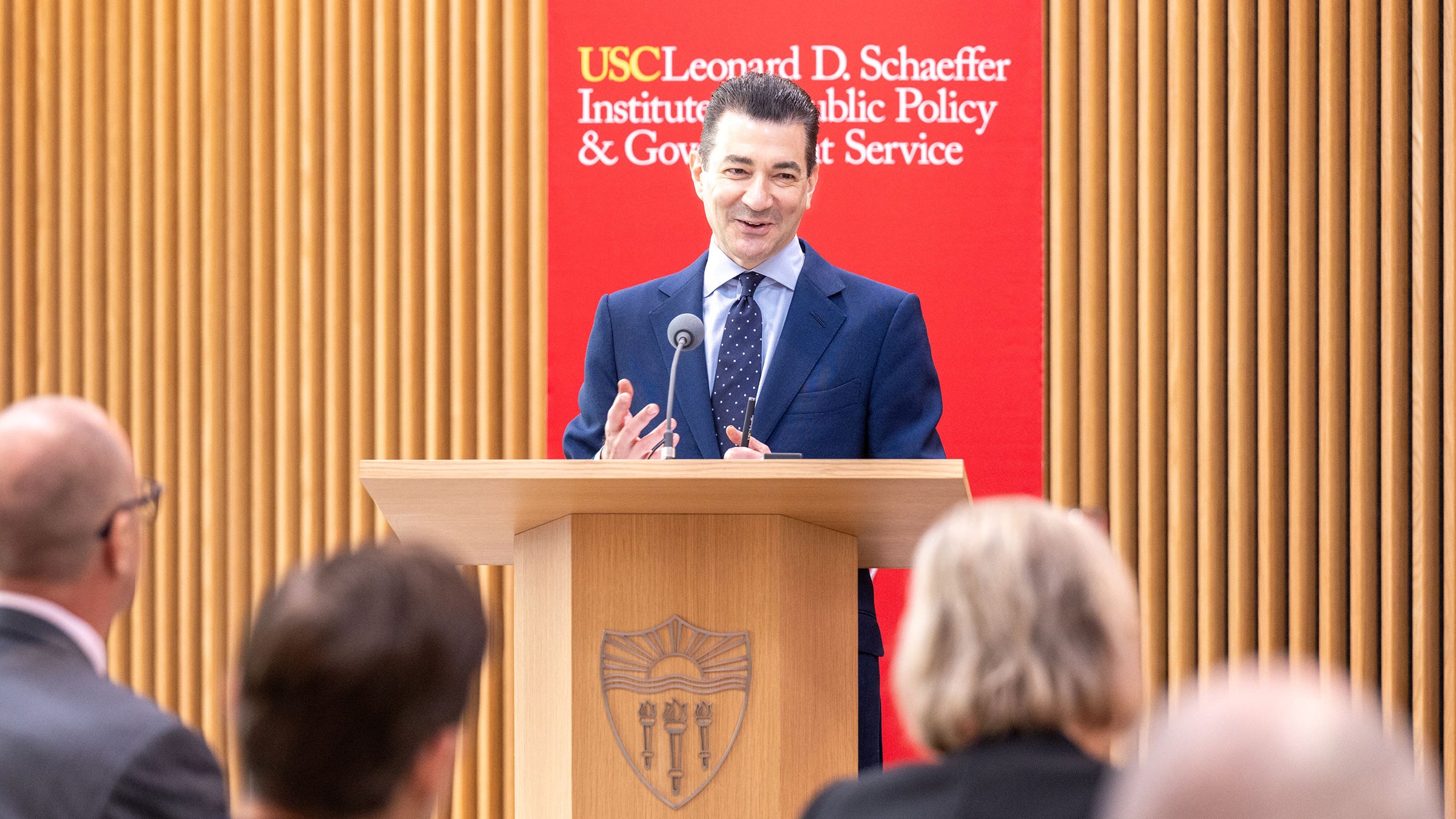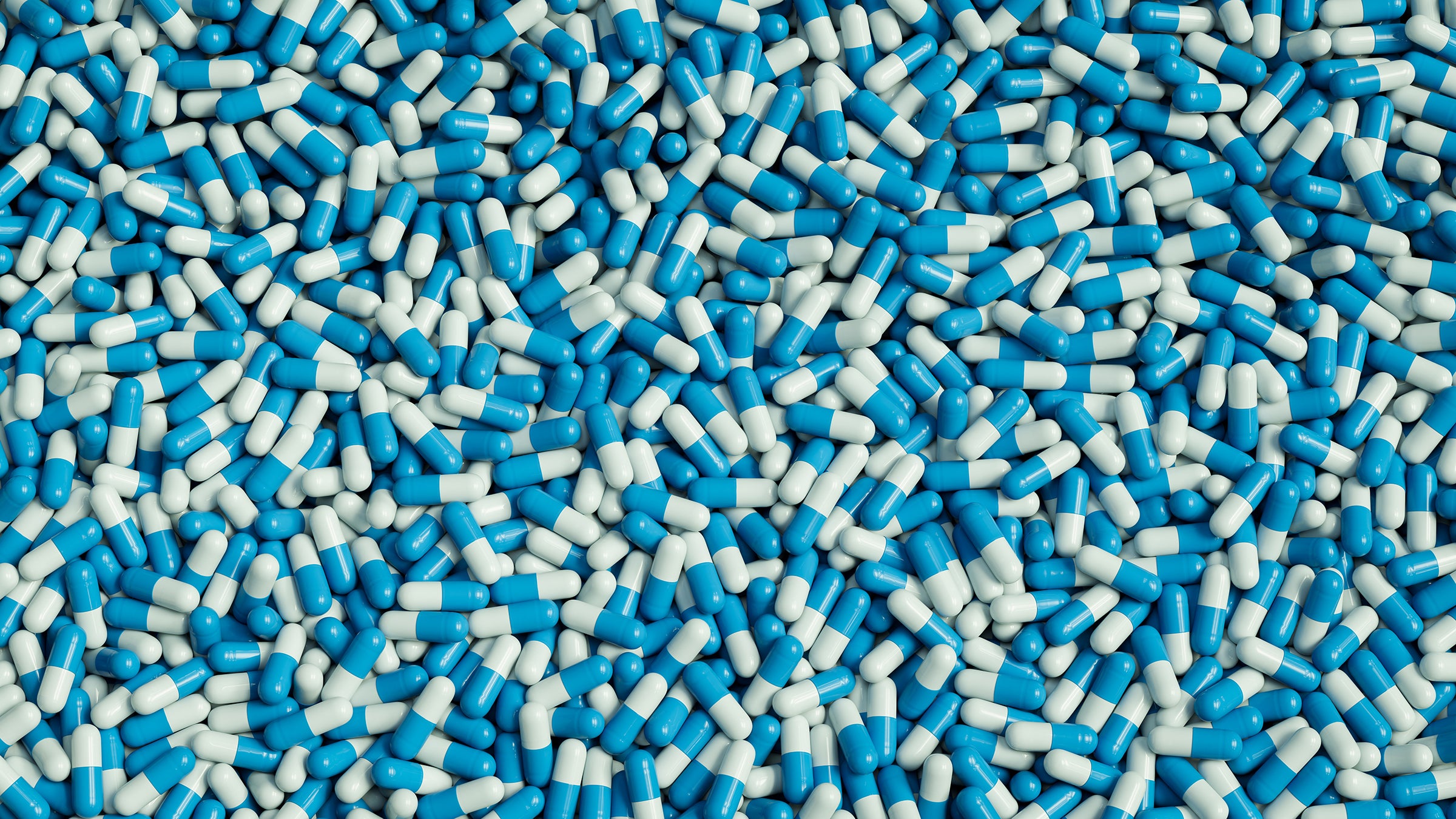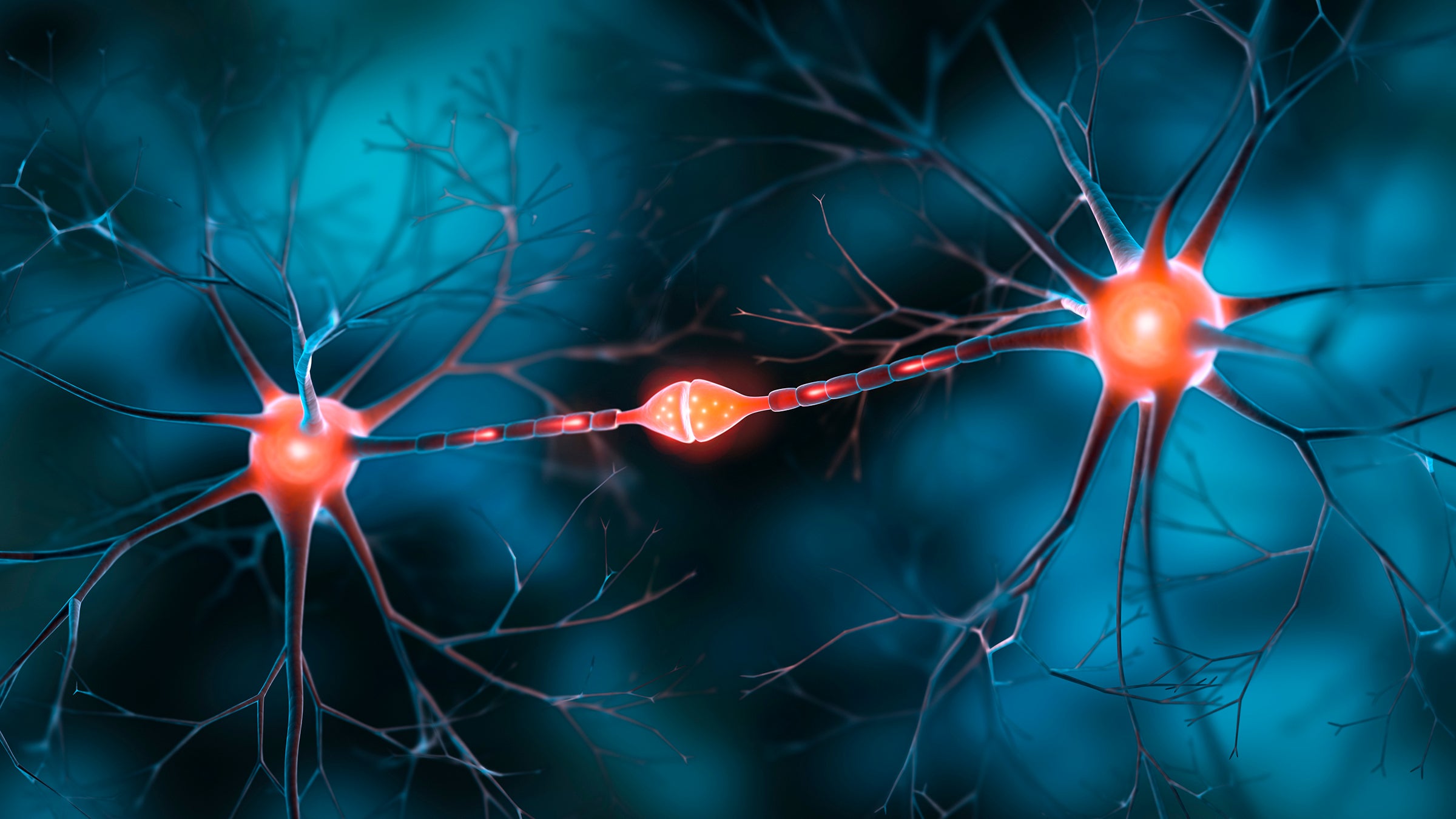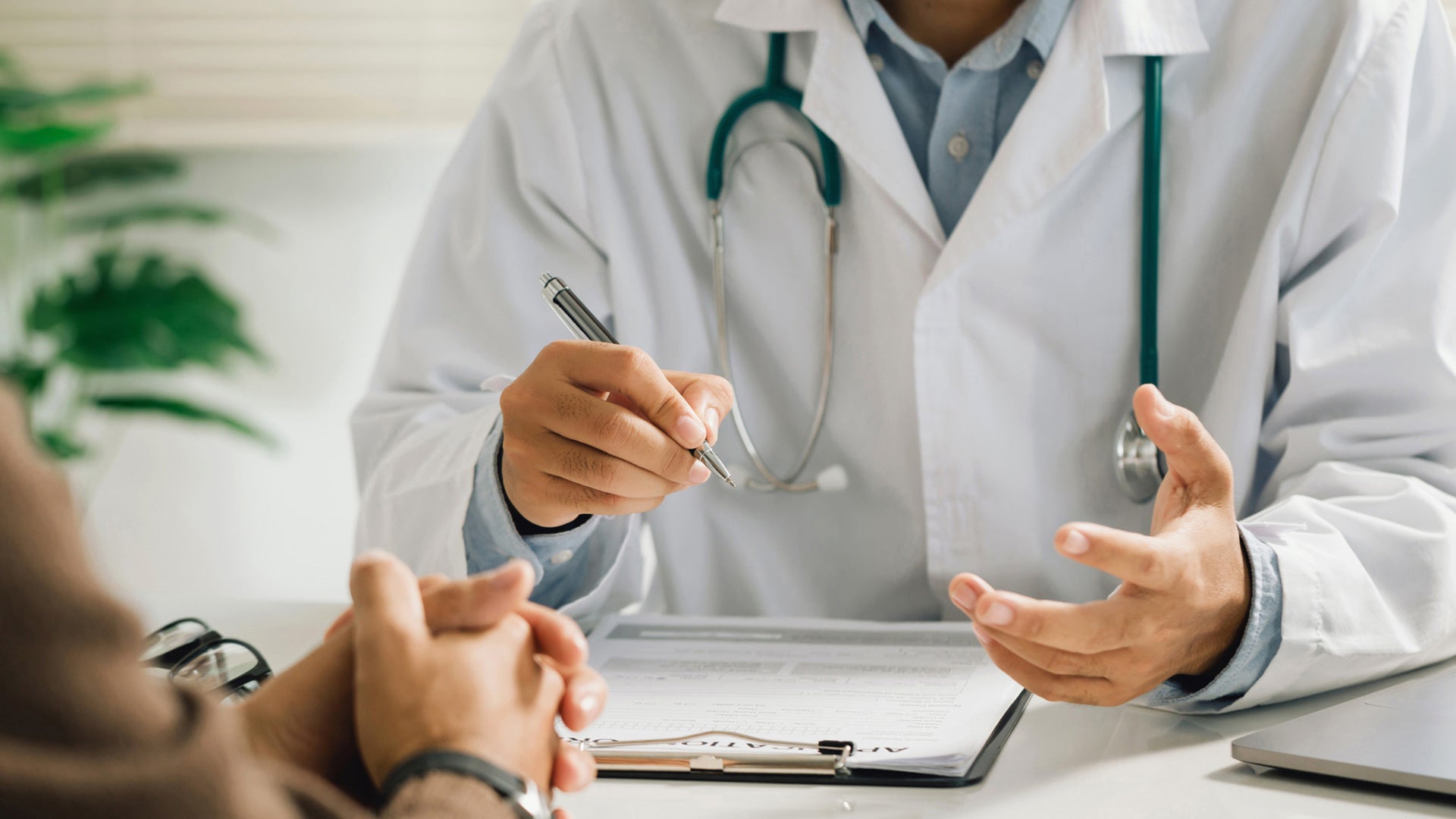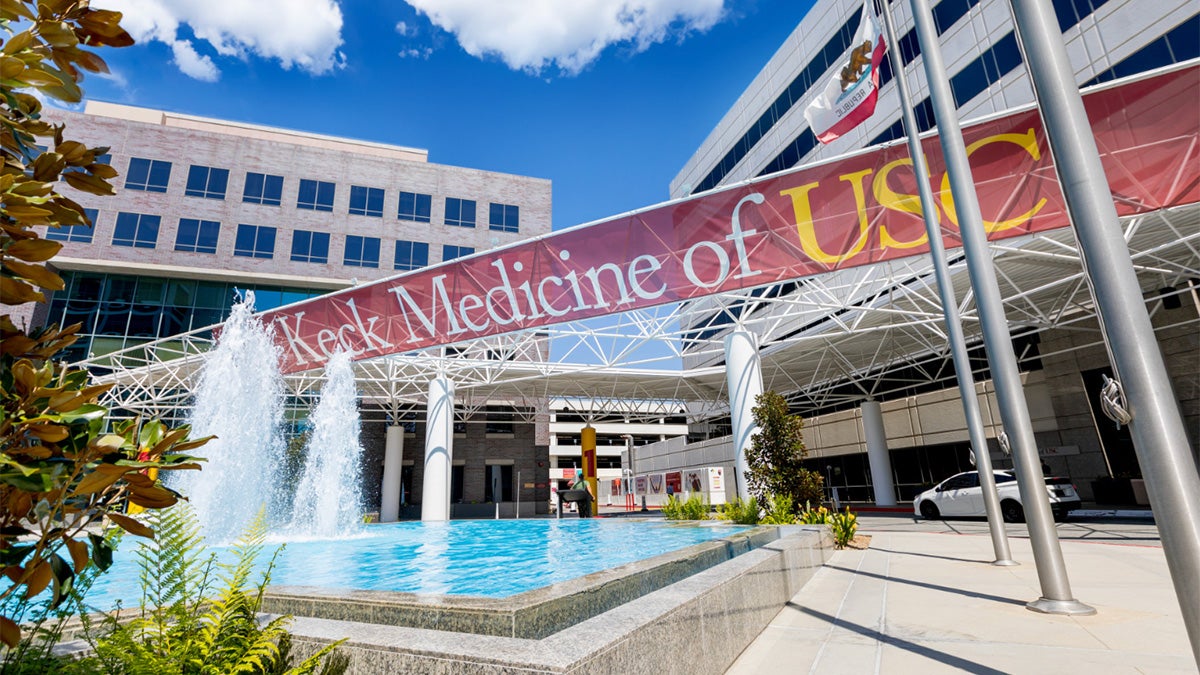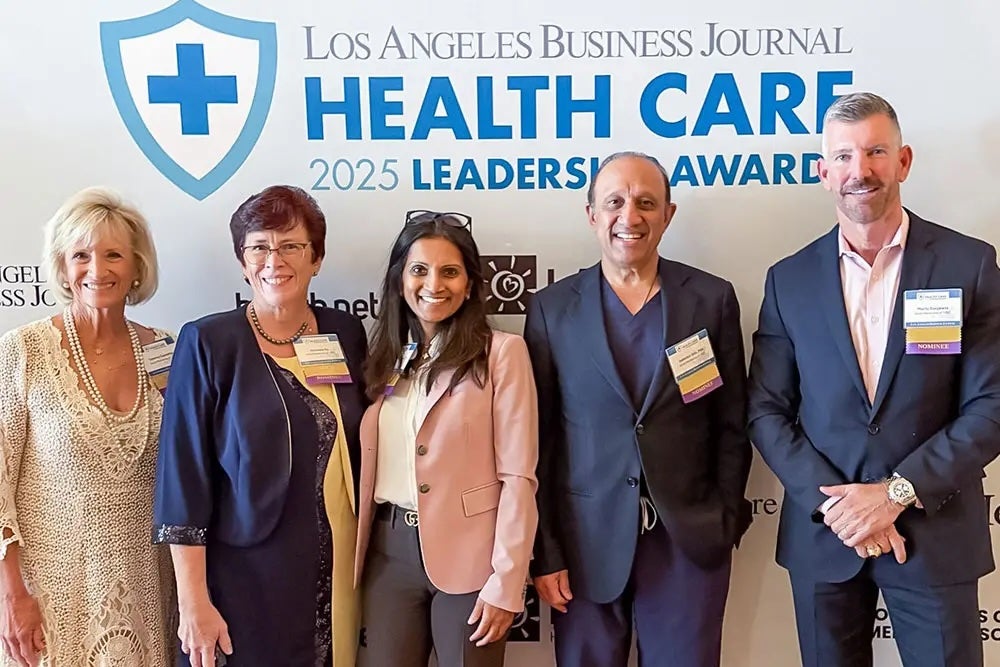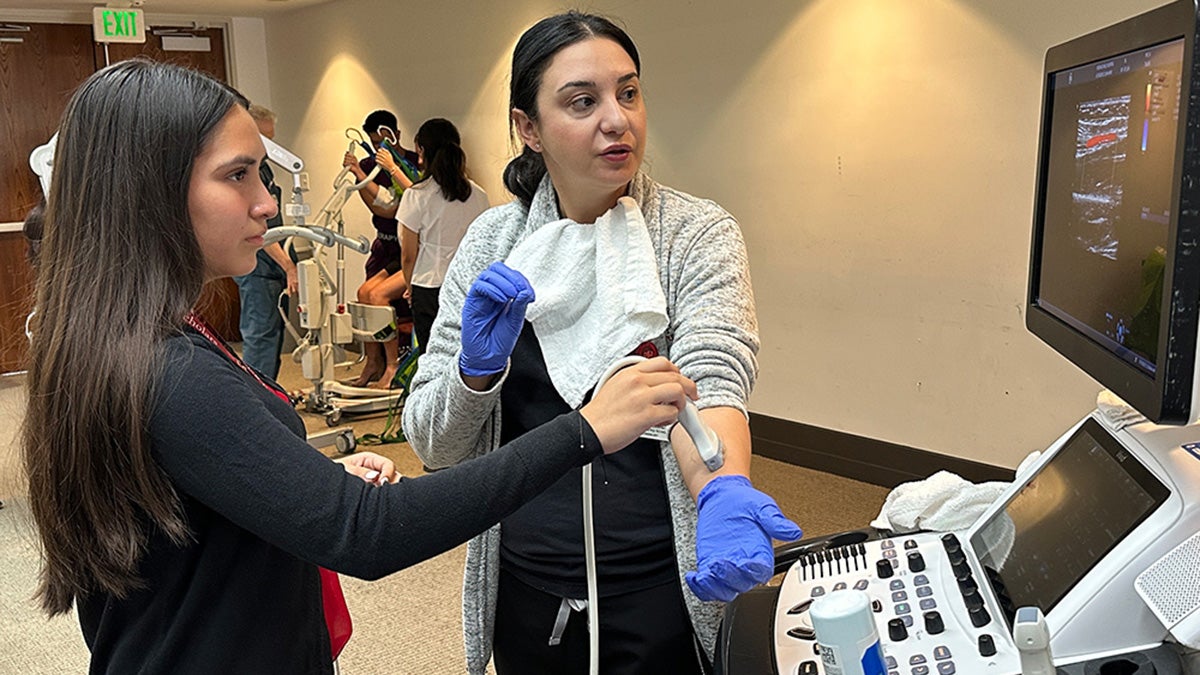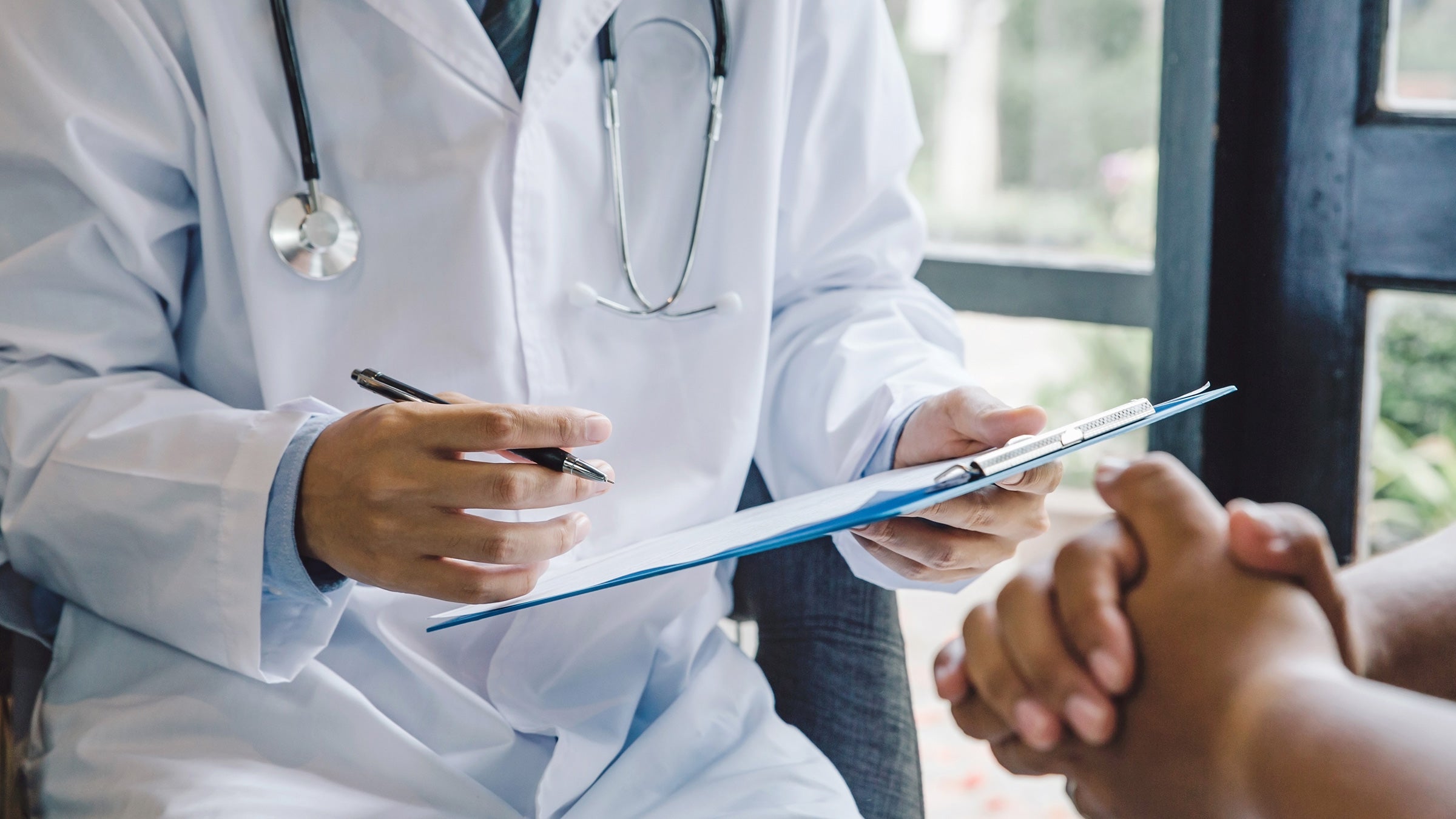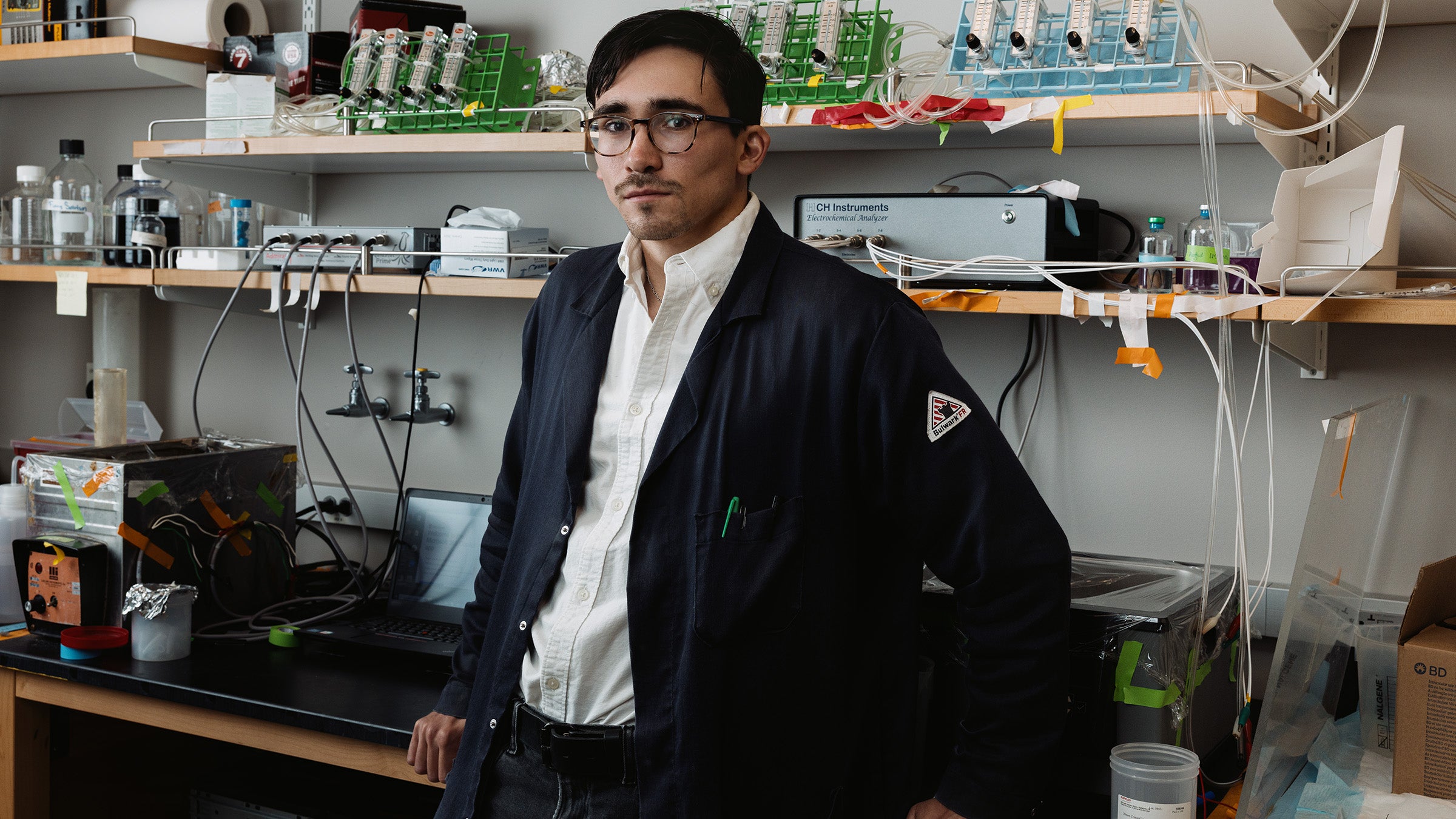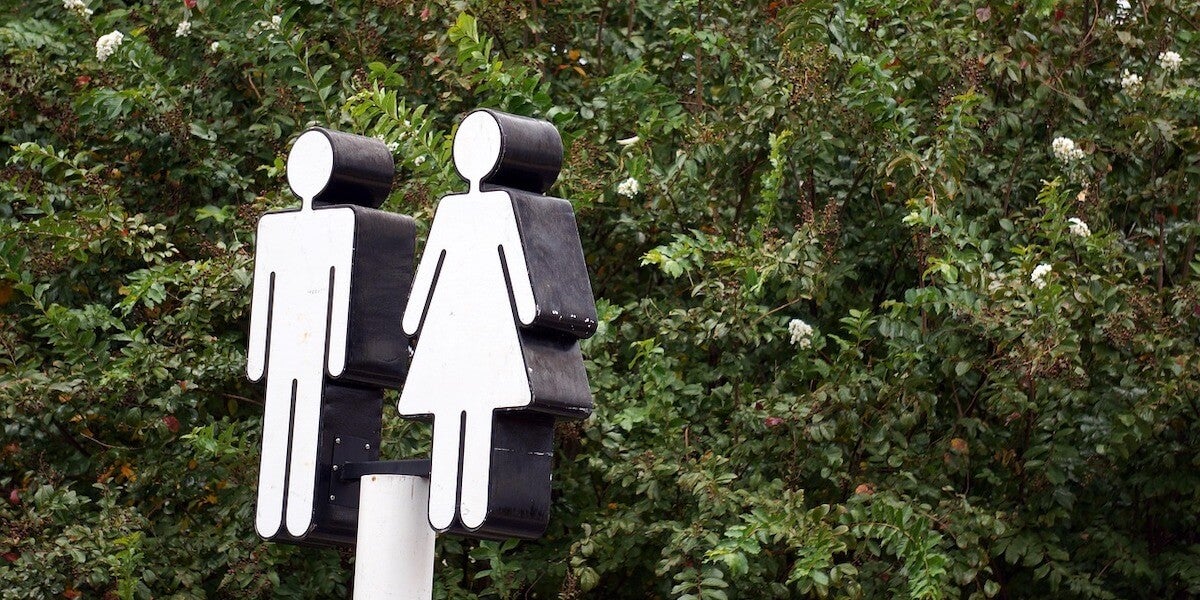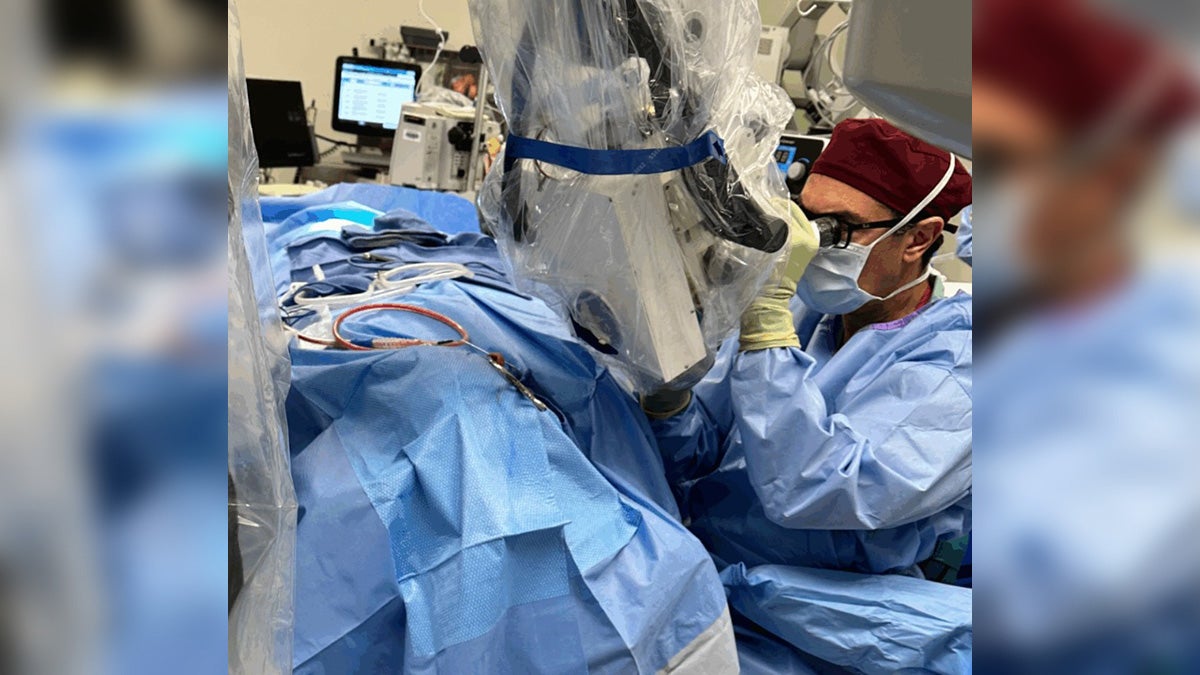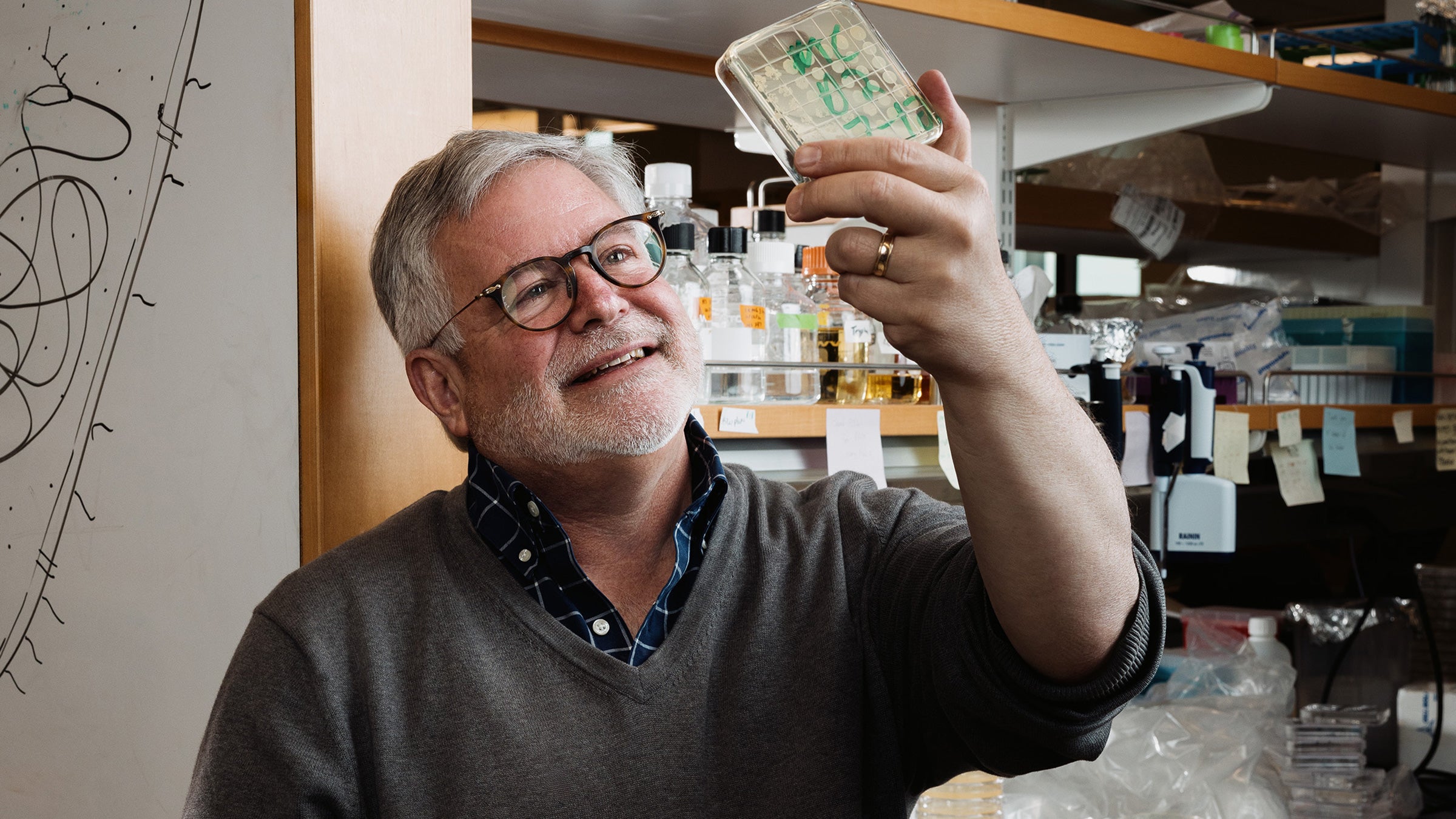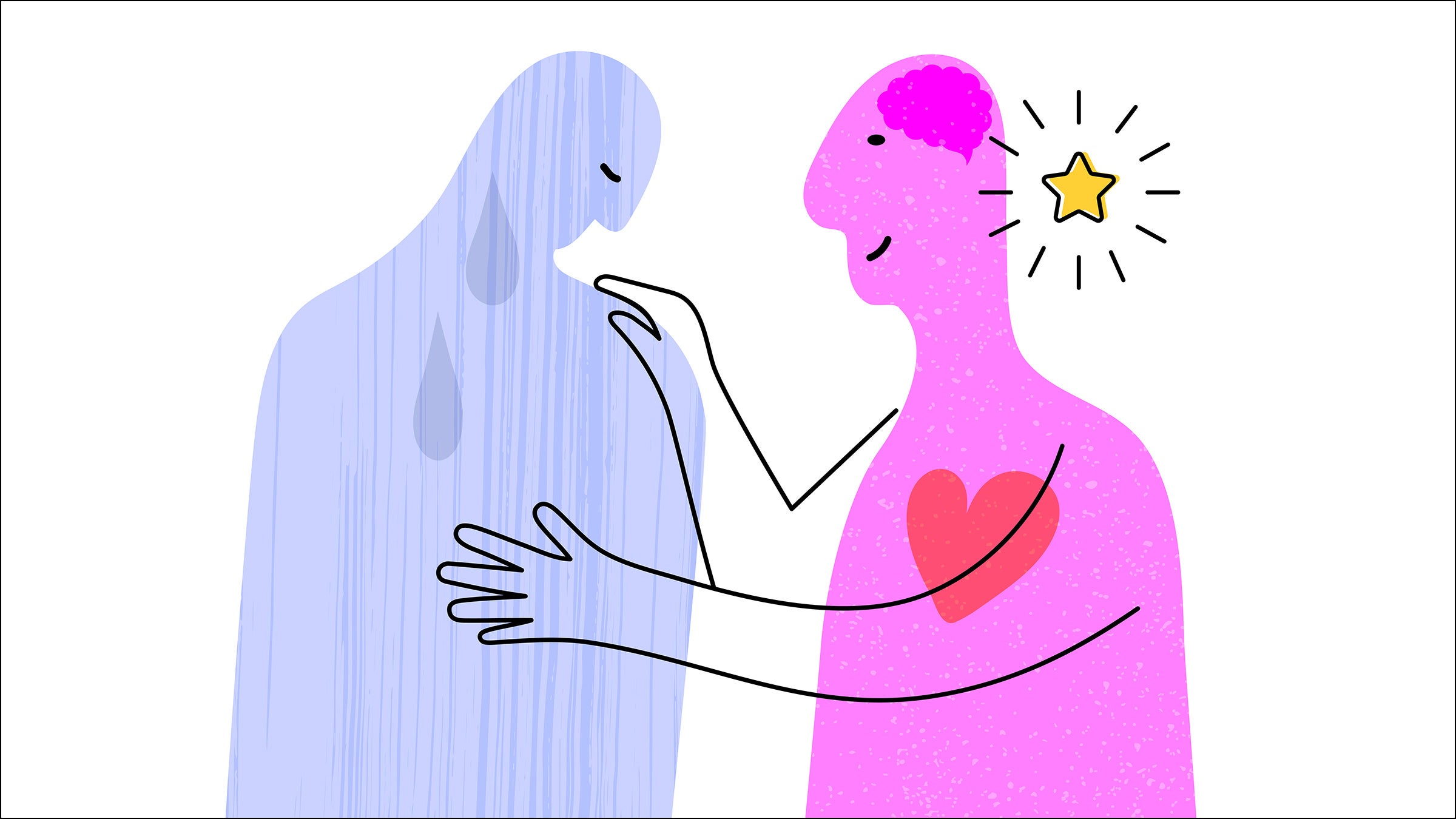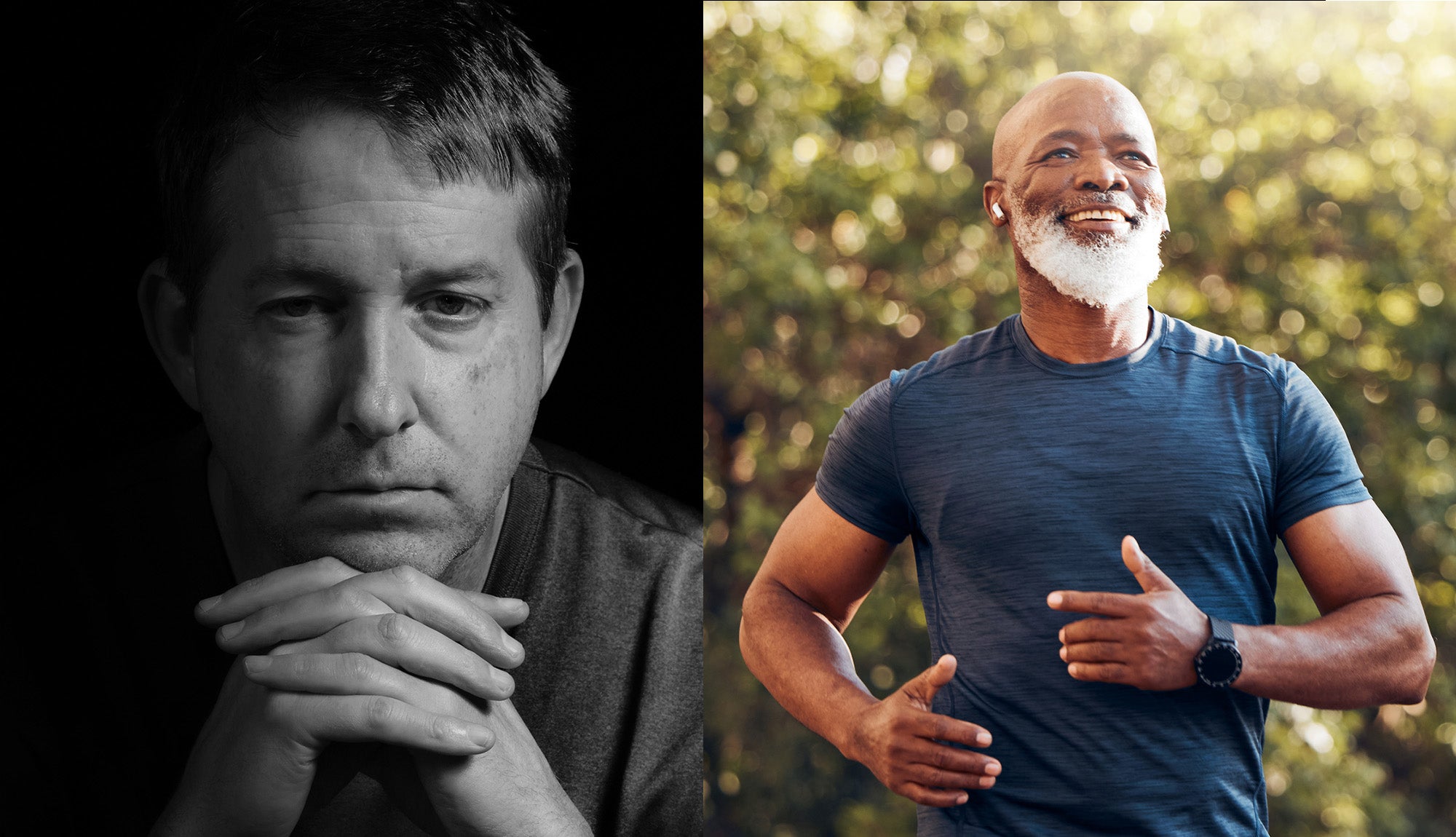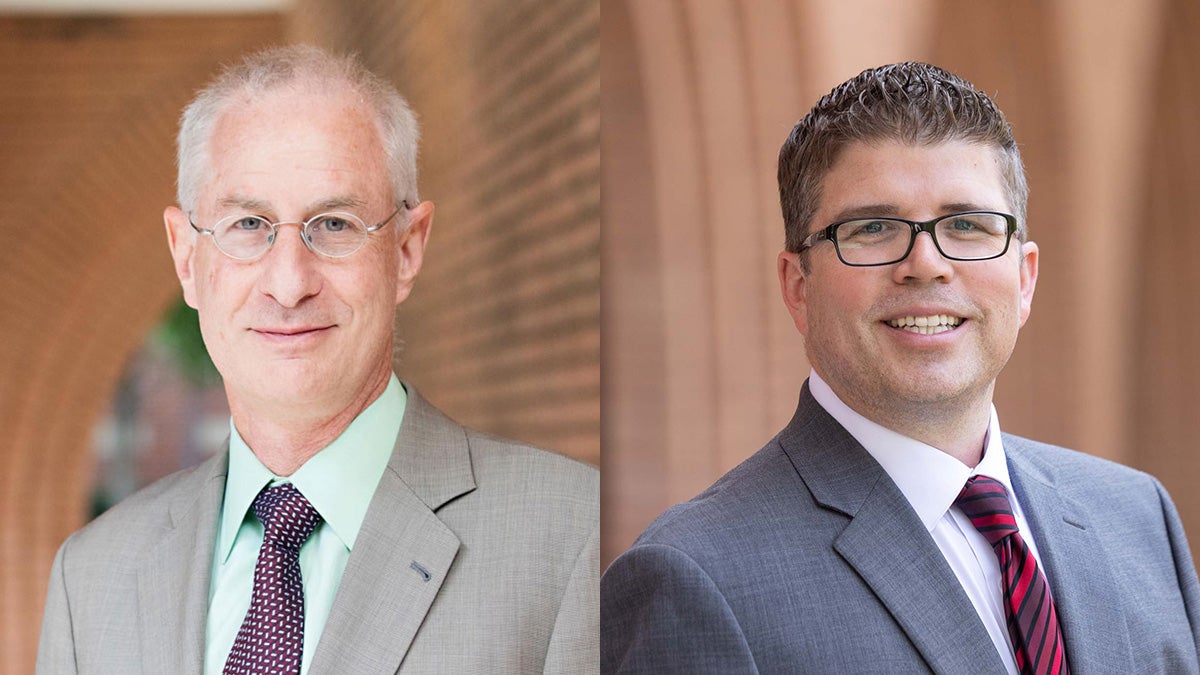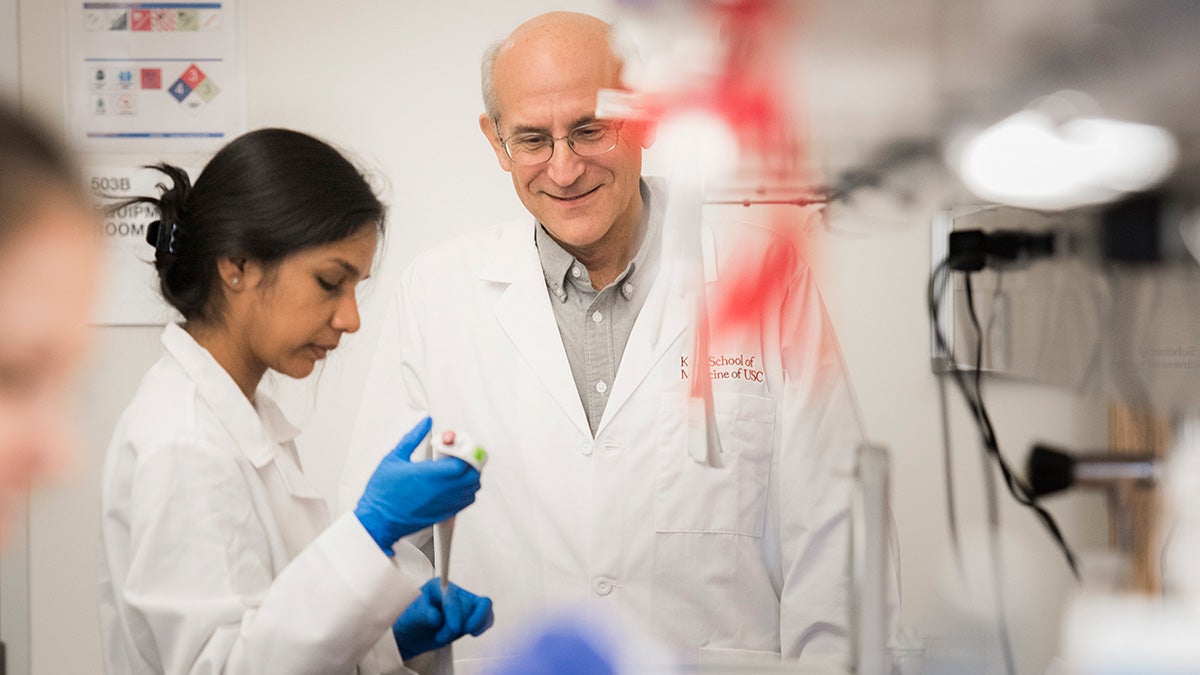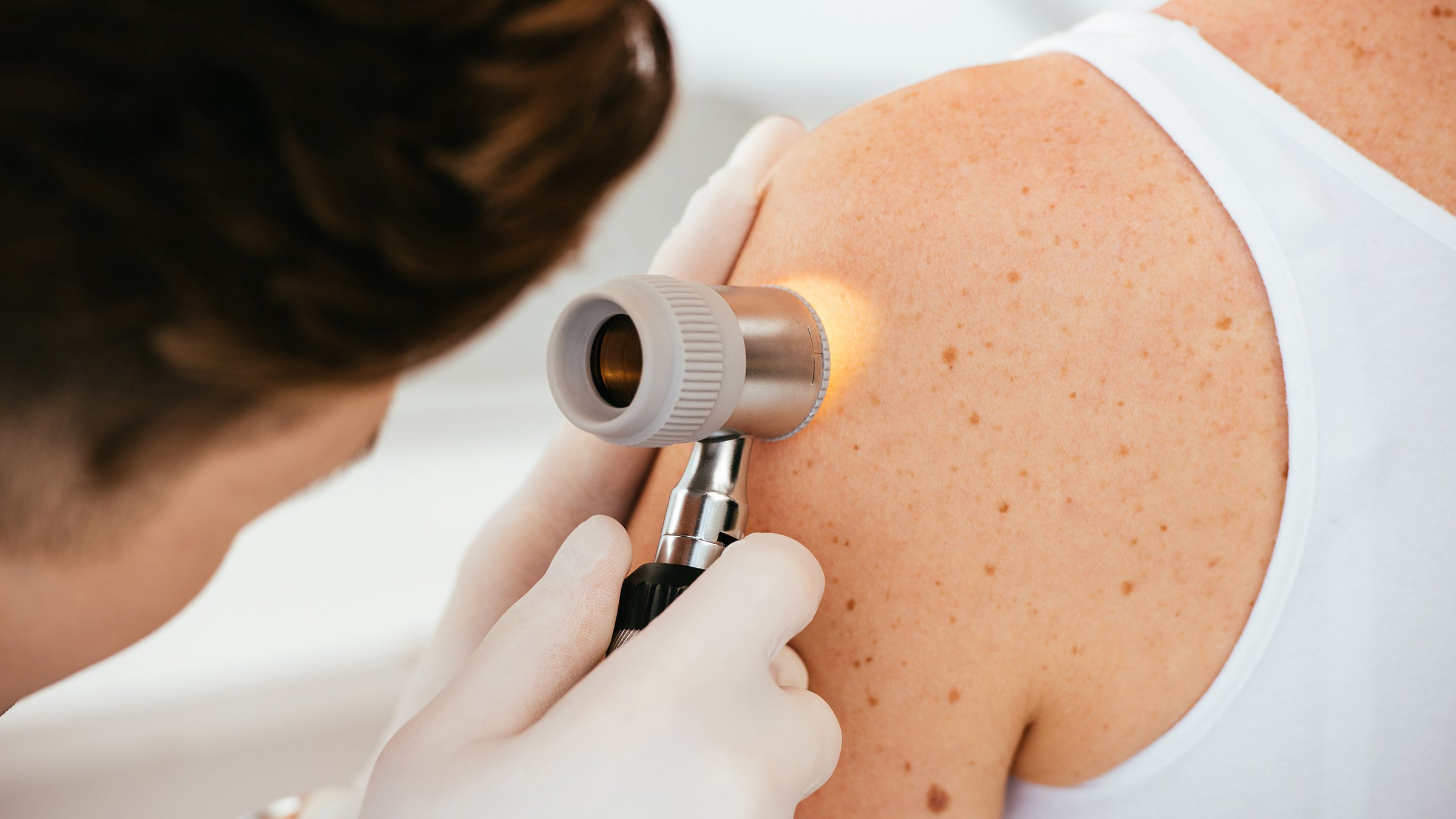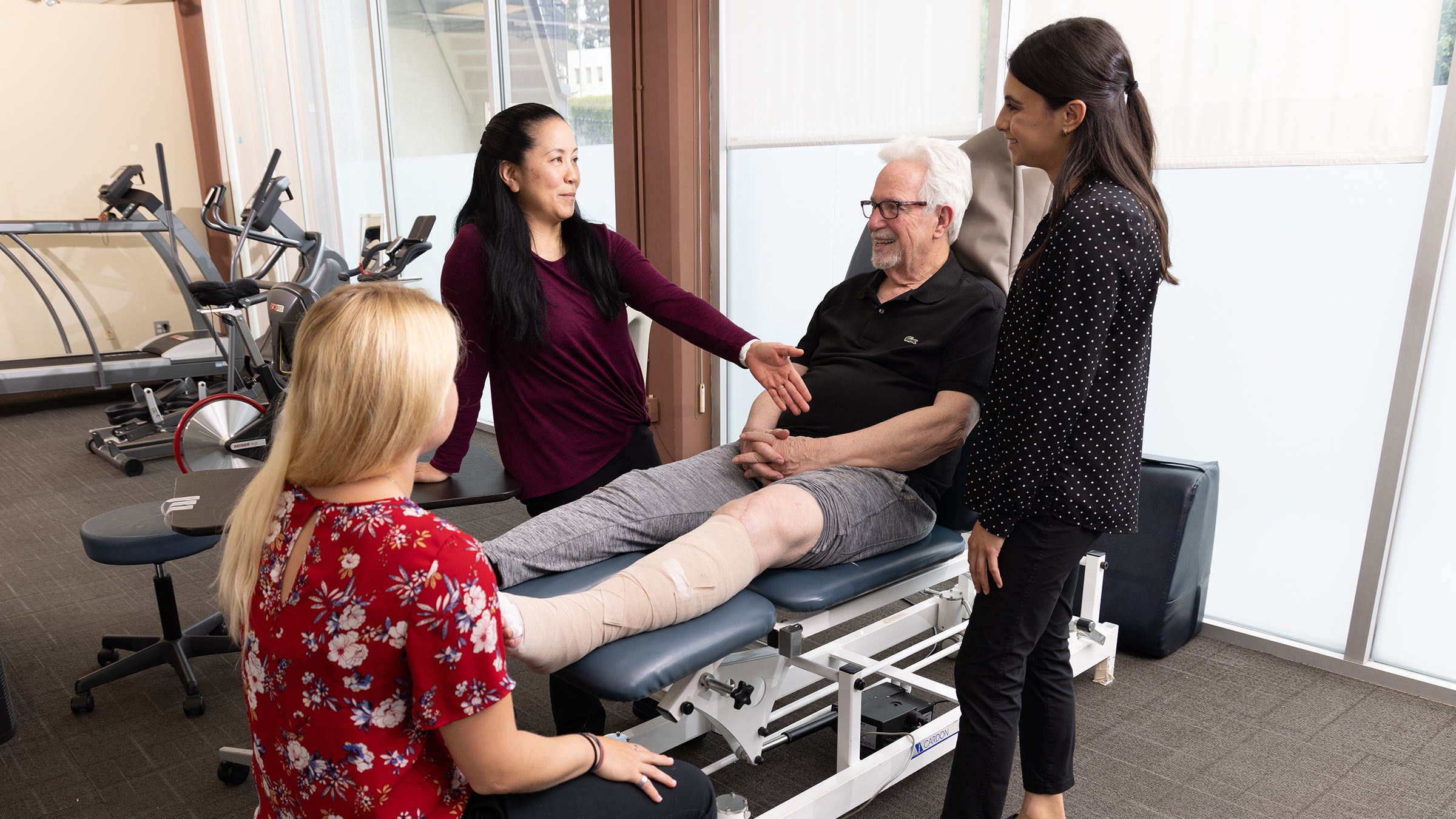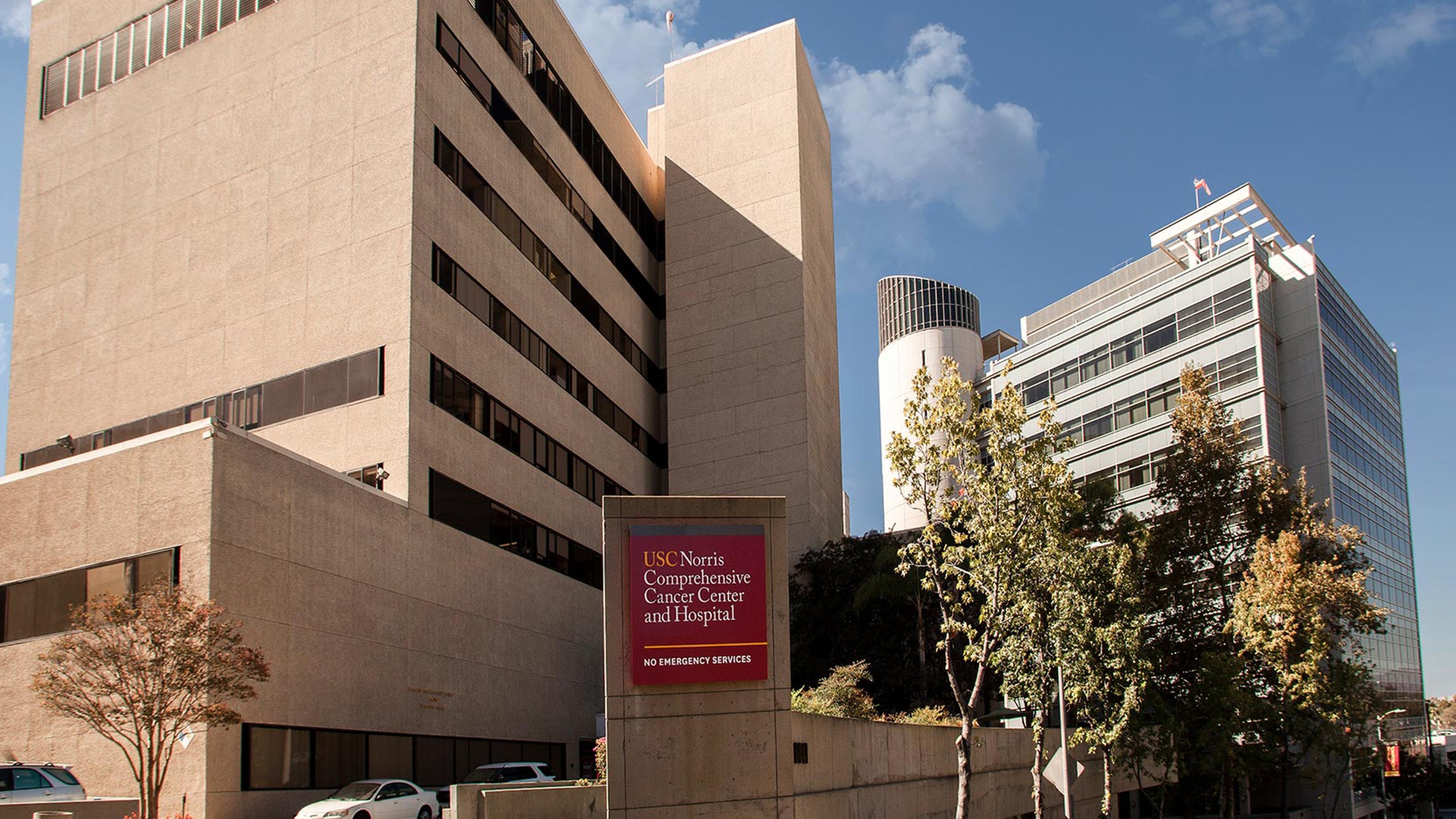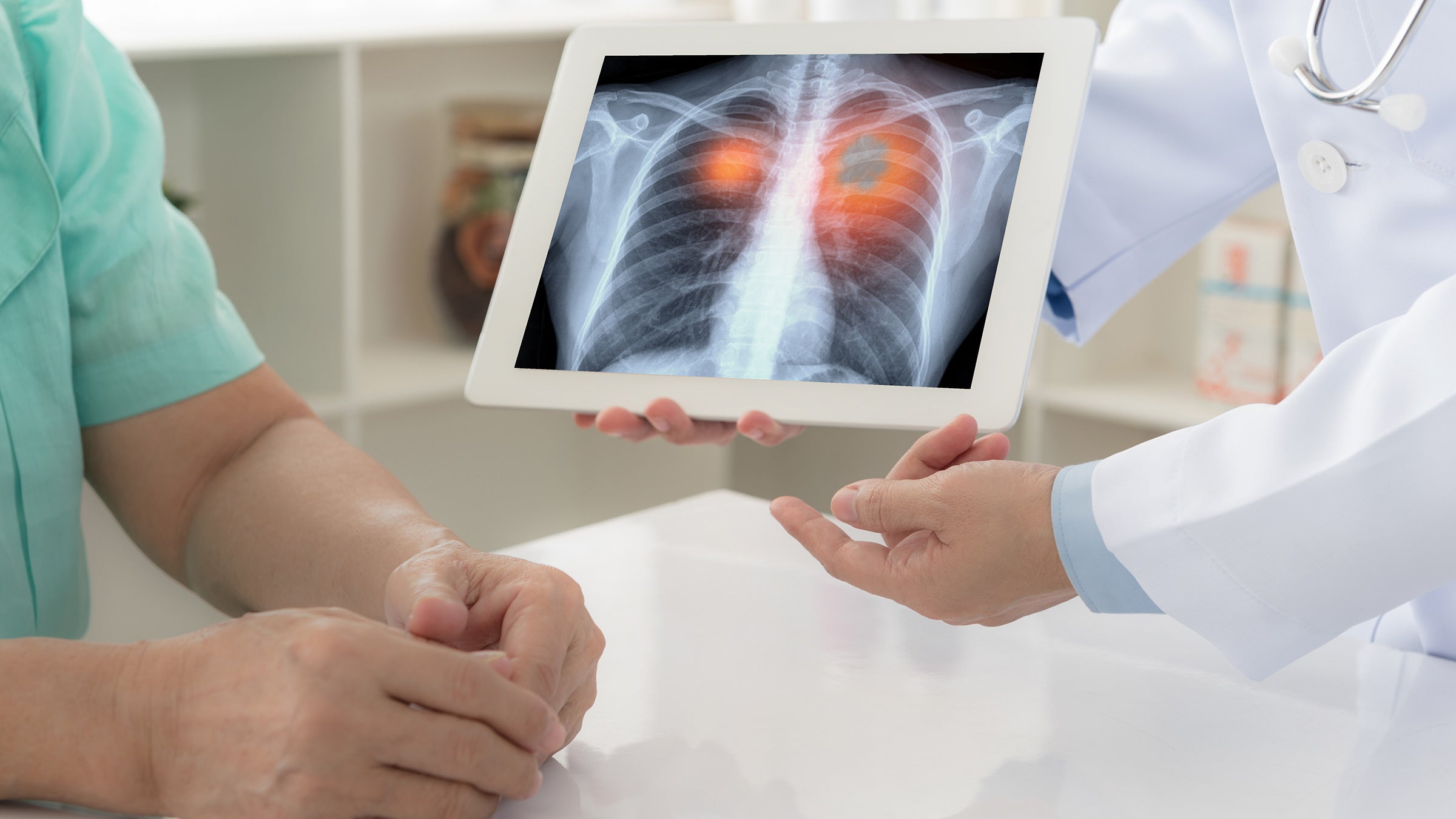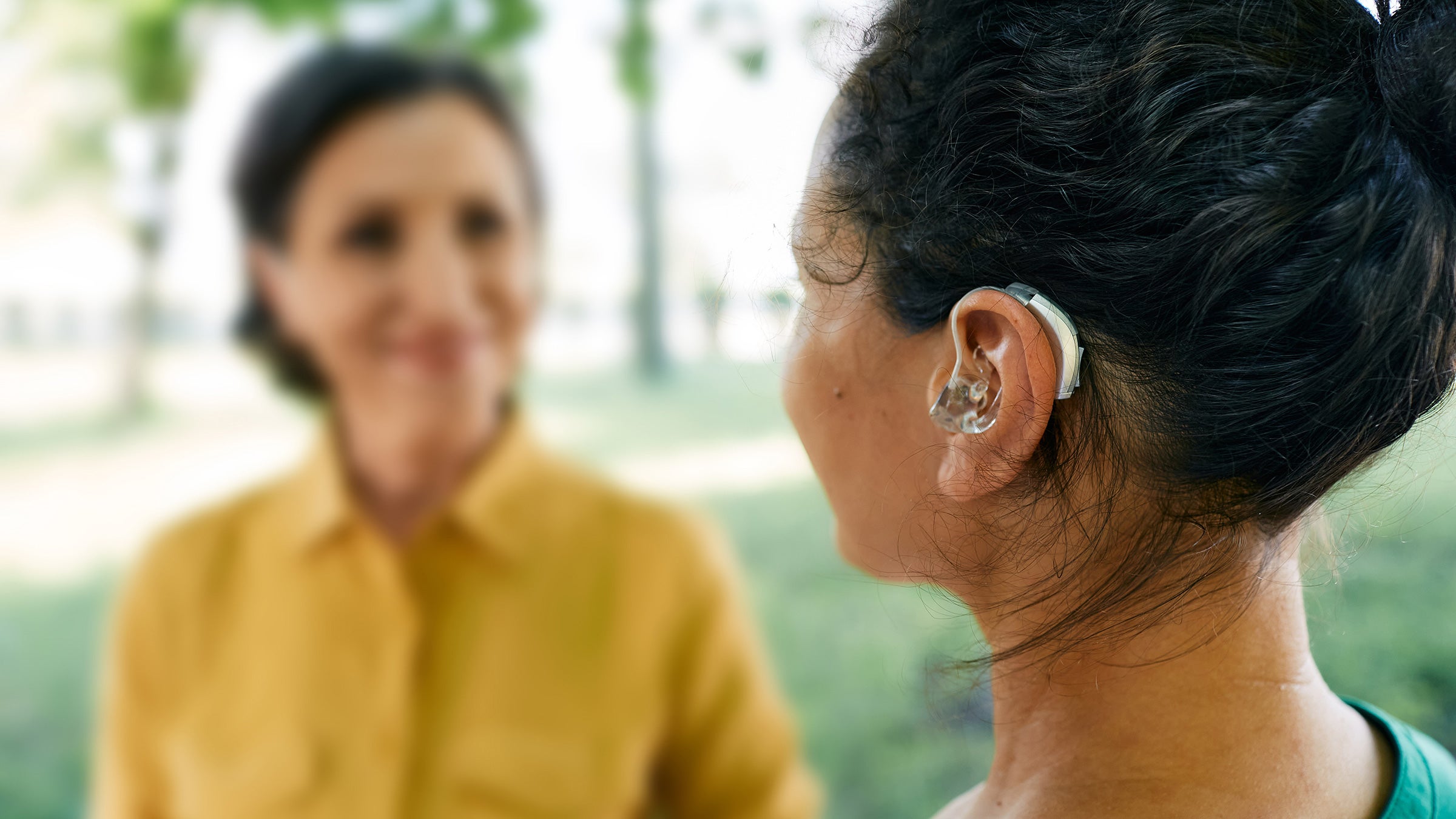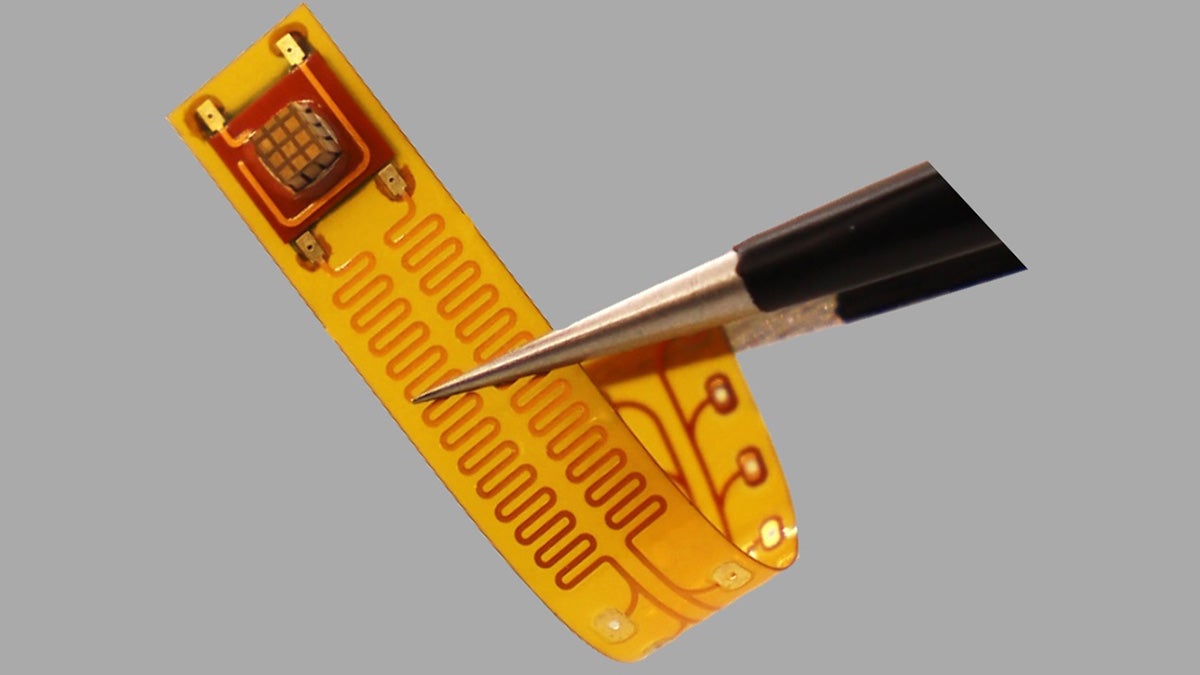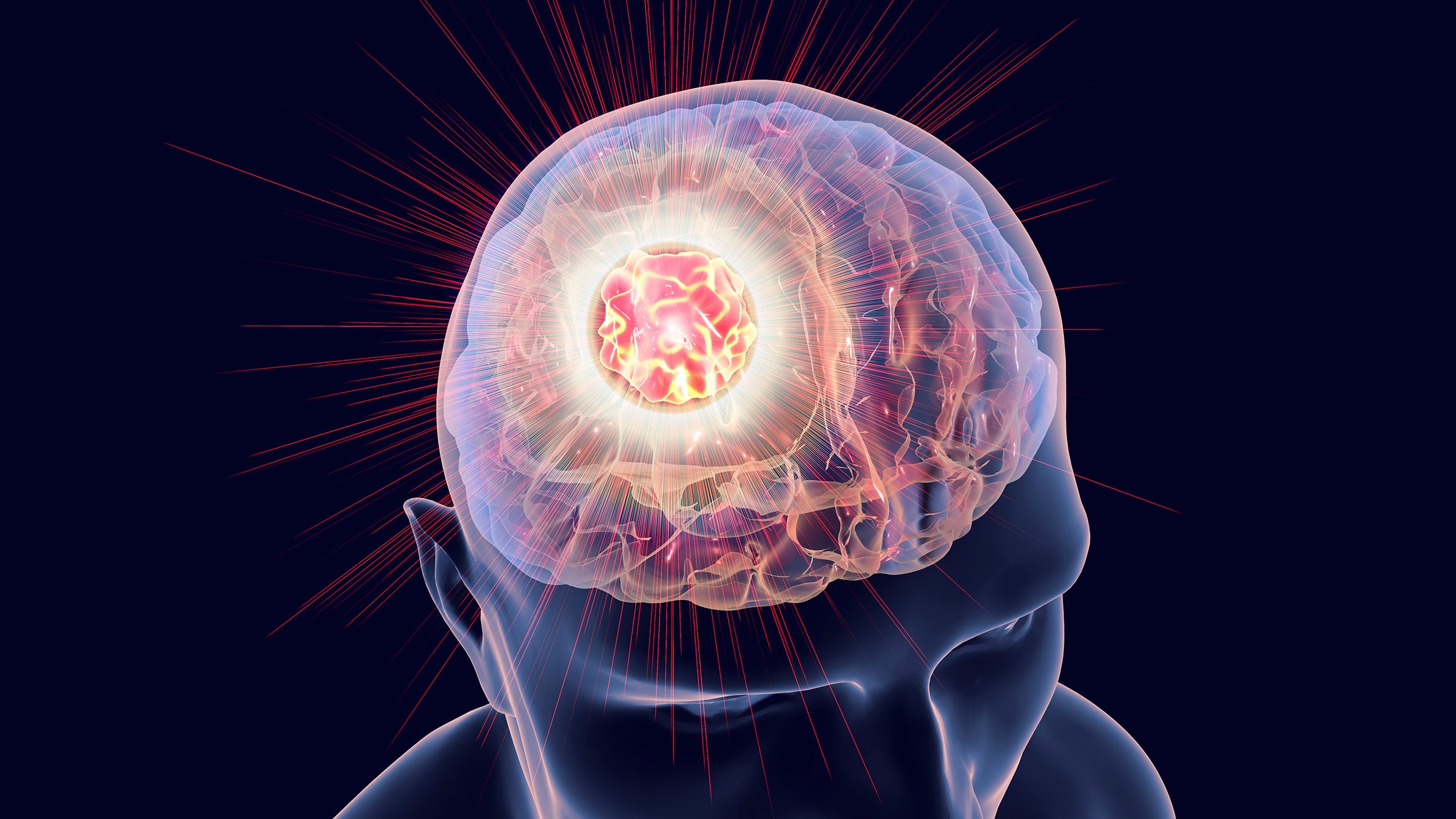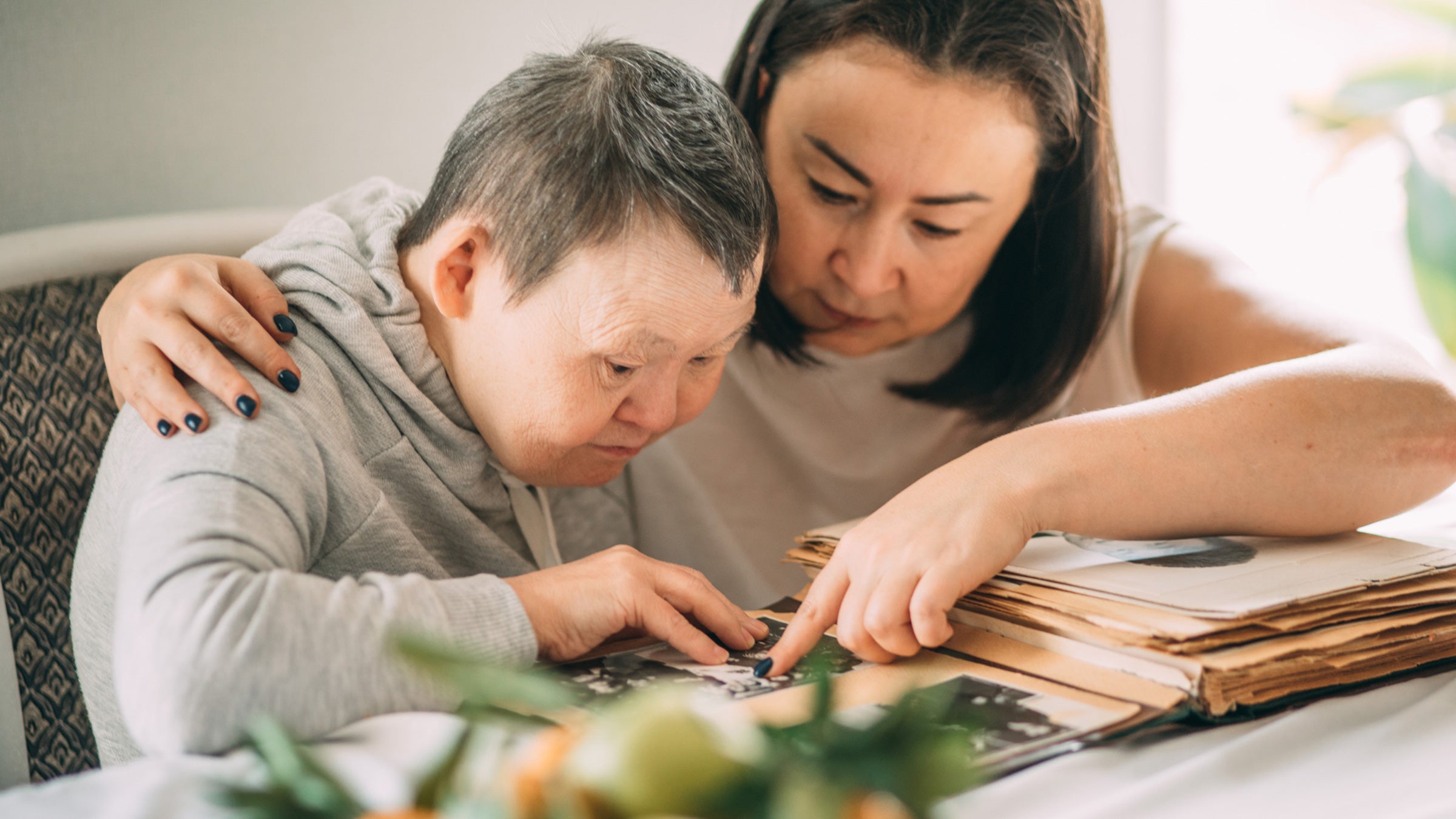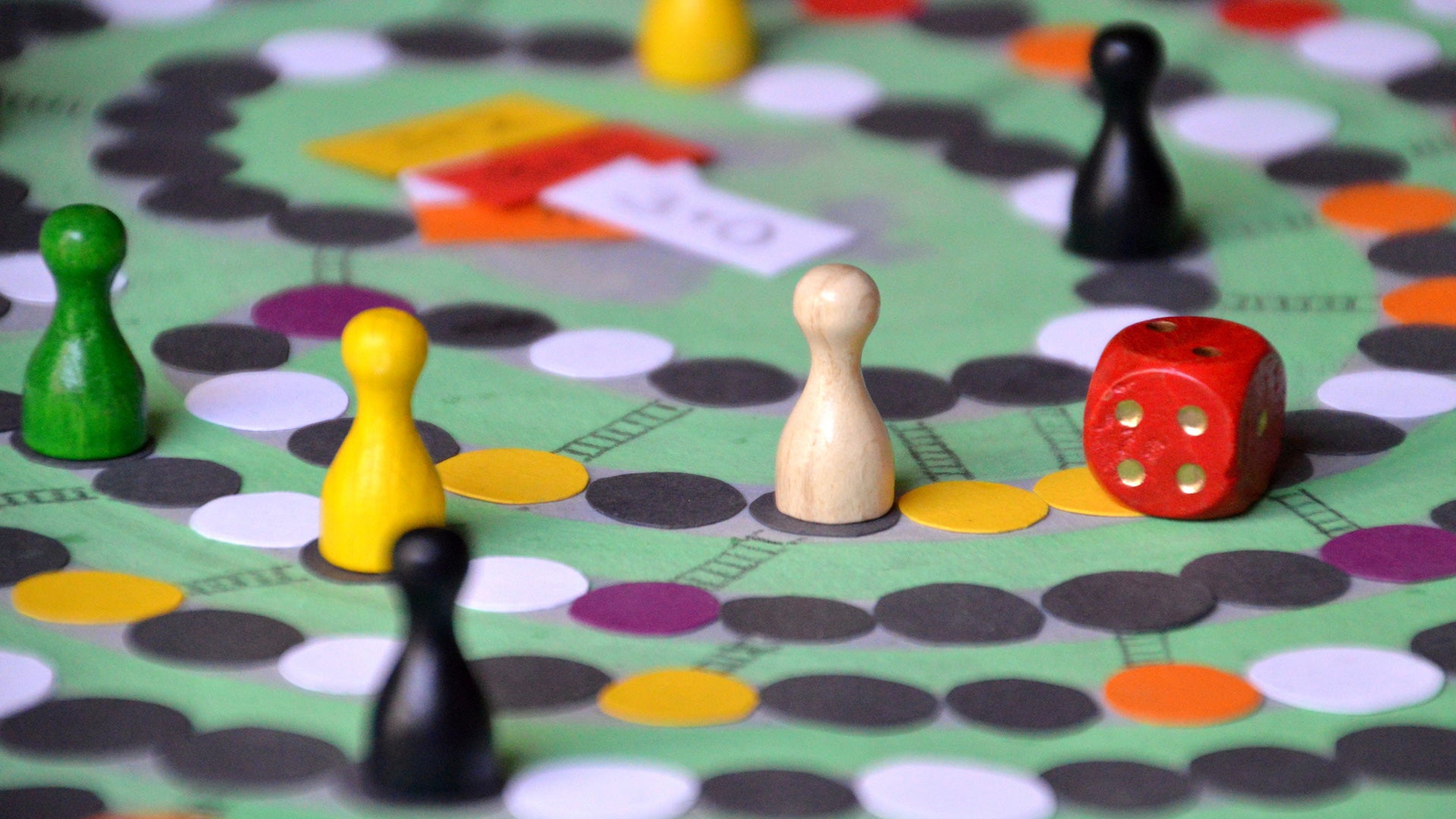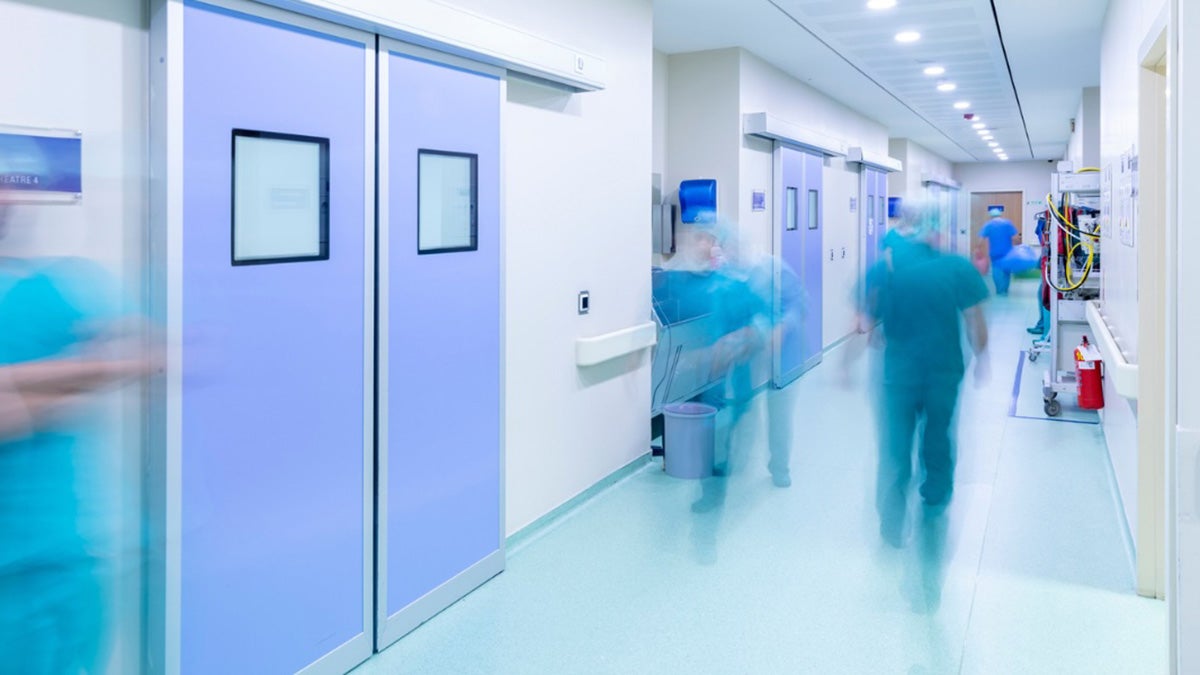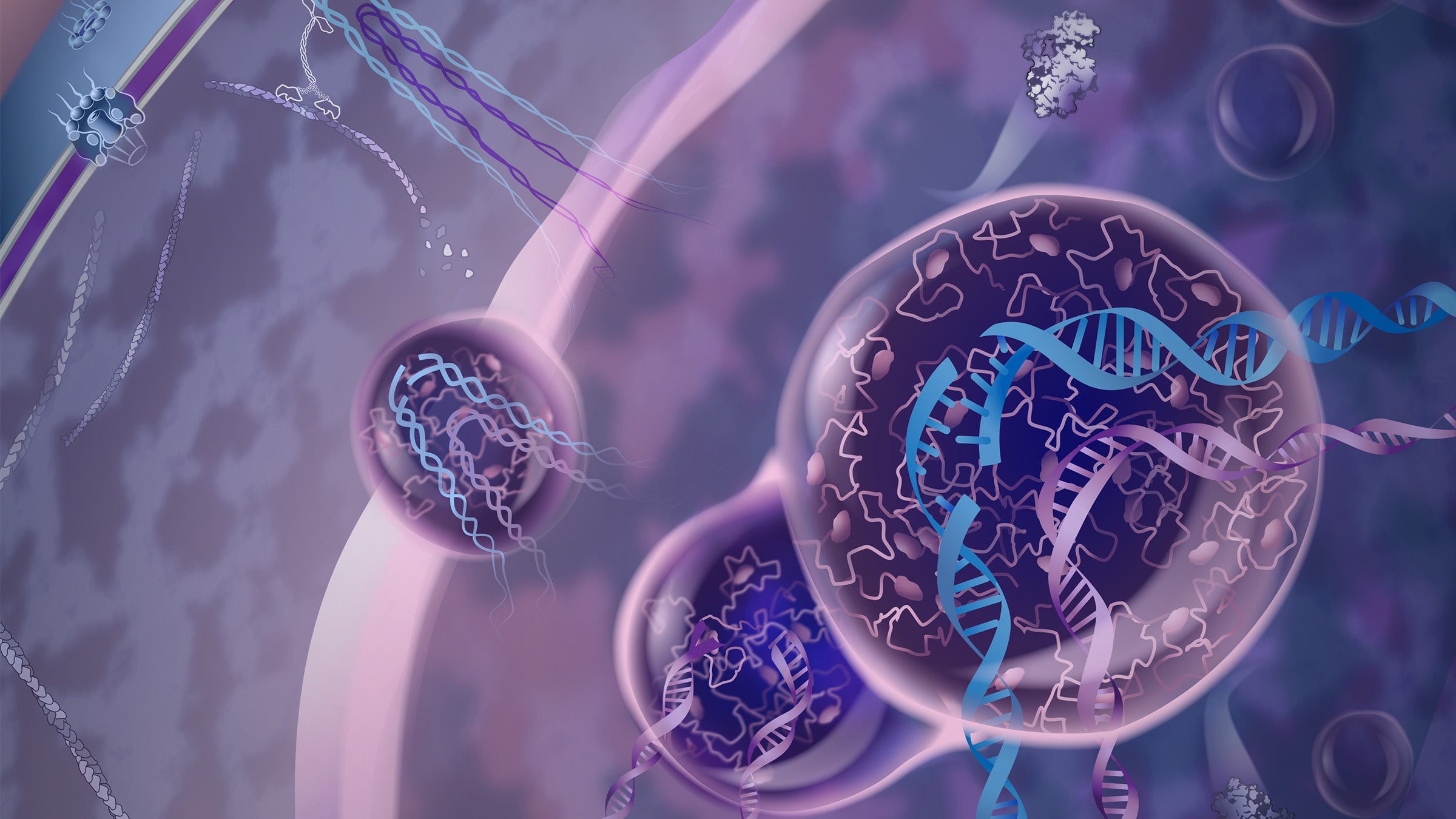
Scholars and students share their own stories
A volunteer from the USC Joint Education Project teaches elementary school students about DNA using licorice and gumdrops.
Innovators across USC make news every day for their discoveries and their commitment to transform health. Get an inside look at their latest work below.
Major review highlights latest evidence on real-time test for blood-clotting in childbirth emergencies
A comprehensive literature review from USC and UCLA researchers analyzed the evidence on viscoelastic testing, which can help assess blood clotting during postpartum hemorrhage, and explored the
Harnessing data to end hospital gridlock and streamline surgery
New data-driven models developed by a USC and Carnegie Mellon-led team could reduce surgery delays, cut hospital costs by up to 60% and improve access to surgery.
USC-led team makes major advance toward building a synthetic kidney
Scientists create “assembloids,” the most mature and complex kidney structures ever grown in a lab and a tool for developing new therapies.
Stem cell transplant for stroke leads to brain cell growth and functional recovery in study
Insights about brain cell damage after stroke and repair after transplant could pave the way for therapies that extend the treatment window, a USC lab study reveals.
Keck Medicine of USC debuts new, state-of-the-art Pasadena location
The newest addition to the USC health system is the university’s largest and most advanced outpatient location.
Mark Humayun installed as Slivinski Chair in Macular Degeneration Research
The noted ophthalmologist and University Professor is the co-inventor of Argus II, which offers functional sight to people with complete retinal blindness.
$10 million gift launches Renaud Family Business of Healthcare Innovation Program
The gift from Ronald and Marianne Renaud to USC Marshall will empower students, faculty and businesses to tackle society’s most pressing health and wellness challenges.
Keck School of Medicine receives national honor for community engagement
The Association of American Medical Colleges recognizes the school for outreach, education, service, research and increasing access to cutting-edge clinical care.
Education gap linked to differences in biological aging
USC research finds that Americans with less education are aging faster biologically than their peers with more schooling. The gap has grown over the last 30 years.
USC researchers develop brain imaging method to reveal hidden vascular changes with aging
The technique reveals how tiny blood vessels in the brain pulse with each heartbeat — changes that may hold clues to aging and diseases such as Alzheimer’s.
New policies needed to boost medical innovation, former FDA leaders say
Advances in rare disease treatments and clinical trial tools demand new regulatory frameworks, former commissioners say at a USC Schaeffer Center conference.
Provider misperceptions, not knowledge or profit, drive inappropriate antibiotic prescribing in India
Overuse of antibiotics can lead to drug-resistant bacteria, “a problem for the whole world, not just India,” study finds.
USC researchers win $8 million NIH grant to pursue novel Alzheimer’s drug
By focusing on a trigger of brain inflammation, scientists are in pursuit of a new drug therapy and now understand why some with a key risk factor for the disease develop dementia.
Trojan honored by American Society for Bone and Mineral Research
Doctoral student Shuwan Liu receives a 2025 Young Investigator Award for her work examining which signals drive cells to heal large-scale bone injuries.
Study identifies three deadliest risk factors of a common liver disease
Patients with a chronic liver disease known as MASLD who have high blood pressure, pre-diabetes/diabetes or low HDL cholesterol are at greatest risk, USC researchers find.
Keck Hospital of USC honored for quality care for third year in a row
The hospital is a recipient of Vizient’s Birnbaum Quality Leadership Performance award, which recognizes top performers’ quality of patient care.
Keck Medicine of USC honored at Los Angeles health care awards
The health system takes home three top honors and three finalist awards.
Despite relaxed prescribing rules, opioid addiction treatment is still hard to find at pharmacies
Only 4 in 10 U.S. retail pharmacies carry buprenorphine, USC research finds, with access even more limited in Black and Latino communities.
Study reveals how HPV reprograms immune cells to help cancer grow
STORY AND VIDEO: By uncovering how cervical and throat cancers linked to HPV evade the immune system, USC researchers open the door to new treatment strategies.
USC Bovard Scholars gain hands-on health care training at USC Verdugo Hills Hospital
The medical center’s Healthcare Day of Discovery offered participants personalized career exploration opportunities.
Teens with higher blood levels of ‘forever chemicals’ regain more weight after bariatric surgery
USC researchers found that PFAS were linked to greater weight regain and increased waist circumference up to five years after surgery.
New treatment eliminates bladder cancer in 82% of patients
Slow drug-release system found highly effective in treating certain patients with bladder cancer whose tumors were previously unresponsive to cancer therapy.
Breakthrough research reveals new insights into the human gut microbiome
Doctoral student Nicolaus Jakowec helps uncover new insights into the microscopic life that drives human health.
New discovery reveals the spinal cord’s role in bladder control
A first-of-its-kind study offers hope for future treatments of urinary incontinence caused by neurological disorders, aging and other conditions.
Innovative imaging tool could improve diagnosis and treatment of hearing loss
USC researchers have adapted a low-cost imaging method developed for ophthalmology and used it to visualize tiny structures in the human inner ear.
USC researchers pioneer lifesaving cancer breakthroughs
From research lab to hospital bedside, USC’s culture of innovation fosters groundbreaking approaches to the detection, treatment and prevention of cancer.
Gut health affects your mood, energy, well-being and more
The gut-brain connection and trillions of microbes in your digestive system impact mental health, immunity and well-being. USC Dornsife’s Steven Finkel explains.
How the brain learns to care
USC Dornsife psychologists show that empathy can be conditioned through emotional rewards — revealing a surprising path to compassion.
What happens when society stops expecting you to work?
A USC Dornsife study finds that for unemployed men, mental health improves significantly after 50 — not because of aging or more leisure time, but because retirement becomes socially acceptable.
Cancer as a journey, not a battle: How we frame the illness may influence outcomes
USC Dornsife’s Norbert Schwarz discusses how the warrior mindset may actually have a negative effect on patients.
Alcohol-related liver disease has more than doubled in the last 20 years
Four groups — women, adults 45 and older, those living in poverty and people with metabolic syndrome — are possibly driving this increase, a USC study finds.
New wearable sensor made at USC could help bipolar patients track medication levels through sweat
The sensor, believed to be first of its kind, could vastly improve treatment and drug safety for millions of patients who take lithium for bipolar disorder.
USC Leonard Davis School faculty honored for research, mentorship
Dean Pinchas Cohen and Vice Dean Sean Curran are recognized for extraordinary work in aging by the Gerontological Society of America.
Mission: Possible
USC is a top destination for students, faculty and staff seeking purpose-driven work, collaborative learning and innovative discovery — all because the university prioritized health, computing,
How USC uses state stem cell funding to train biotech leaders
More than 100 experts credit their training to a California Institute for Regenerative Medicine Scholars program at USC.
Cancer-fighting herpes virus shown to be effective treatment for some advanced melanoma
A genetically engineered herpes simplex virus, when combined with immunotherapy, reduces or eliminates tumors in one-third of clinical trial patients.
Mindfulness meditation can sharpen attention in adults of all ages
In a USC study, 30 days of app-guided meditation were linked to improvements in how quickly and accurately participants directed their focus.
USC cancer survivorship programs help patients thrive post-diagnosis
Cancer treatments are saving and extending more lives than ever. USC practitioners are guiding patients from diagnosis to treatment to facing their post-care future by connecting them with
USC cancer survivorship: A multidisciplinary effort
Teams of USC practitioners offer a broad range of support in areas including mental health, nutritional guidance, physical therapy, stress management and chronic pain.
Common medication for lung cancer symptoms found to limit effectiveness of immunotherapies
High doses of corticosteroids, prescribed to manage cancer-related symptoms or treatment side effects, are the most significant factor in why some immunotherapies don’t work.
Hearing devices improve more than just hearing — they significantly improve wearers’ social lives
A USC study shows hearing aids and cochlear implants make people more sociable and confident, improving overall well-being.
Wildfire smoke exposure, heat stress linked to adverse birth outcomes
Women in climate-vulnerable neighborhoods were especially affected, according to a recent study led by a USC postdoctoral researcher.
Wireless implant is game-changer for personalized chronic pain relief
USC researchers have developed a groundbreaking ultrasound device that could reduce our reliance on addictive painkillers.
Could electric fields supercharge immune attack on the deadliest form of brain cancer?
USC-led research finds that an electric field device placed on the scalp, along with immunotherapy and chemotherapy, may help patients with glioblastoma live longer.
Iron plays major role in Down syndrome-associated Alzheimer’s, USC study finds
Research indicates how iron-related oxidative damage and cell death may hasten the development of Alzheimer’s disease in people with Down syndrome.
How much of aging is a really just a roll of the dice?
“Biological stochasticity” — random events at the molecular and cellular level — might be one of the biggest, most overlooked drivers of differences in how we age, a USC gerontology expert says.
Most Medicare beneficiaries may pay more for drugs under the Inflation Reduction Act
Part D plans are accelerating cost-shifting to beneficiaries, many of whom won’t reach the law’s new spending cap, a USC Schaeffer Center white paper reports.
Why doctors choose to start their careers where they do
A new study from researchers at USC’s Viterbi Information Sciences Institute takes a data-driven look at geographic health care inequities.
Brain cell discovery may explain excessive hunger
Researchers identify “meal memory” neurons in laboratory rats that could explain why forgetting lunch leads to overeating.
USC Dornsife study reveals how protein droplets help cells master difficult DNA repair
Research uncovers a mechanism that protects the genome by avoiding catastrophic errors when repairing breaks in tightly packed DNA, a finding with implications for cancer and aging.
“Donor support enables experts across USC to develop bold new ways to prevent and fight disease. To learn how your contributions would help us transform health, please email me.”
Joel Smith
Senior Associate Vice President
USC Health Sciences Advancement
